Chancellor of the Exchequer on:
[Wikipedia]
[Google]
[Amazon]
The chancellor of the Exchequer, often abbreviated to chancellor, is a senior
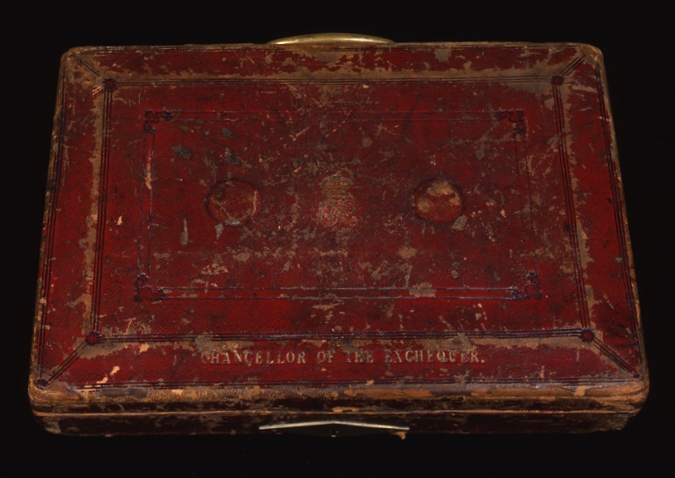 The chancellor traditionally carries his
The chancellor traditionally carries his
1757 , class=nowrap rowspan=2 ,
1761 , rowspan=2 , Whig , rowspan=3 , Pitt–Newcastle , - style="height:1em" , style="background-color:; border-top:none" , ! scope=row style="text-align:center" rowspan=20 , George III

, - style="height:1em" , style="background-color:" , , , William Barrington
, William Barrington
2nd Viscount Barrington
, class=nowrap ,
1761 , class=nowrap ,
1762 , , Whig , - style="height:1em" , style="background-color:" , , , Francis Dashwood
, Francis Dashwood
MP for Weymouth and Melcombe Regis , class=nowrap ,
1762 , class=nowrap ,
1763 , , Tory , ,
, - style="height:1em" , style="background-color:" , , , George Grenville
, George Grenville
, class=nowrap ,
1763 , class=nowrap ,
1765 , , Whig , , Grenville
, - style="height:1em" , style="background-color:" , , , William Dowdeswell
, William Dowdeswell
, class=nowrap ,
1765 , class=nowrap ,
1766 , , Whig , , Rockingham I , - style="height:1em" , style="background-color:" , , ,
,
, class=nowrap ,
1766 , class=nowrap ,
1767 , , Whig , rowspan=2 , Chatham
, - style="height:1em" , style="background-color:; border:none" , , rowspan=3 , , rowspan=3 , Frederick North
, rowspan=3 , Frederick North
Lord North
, rowspan=3 class=nowrap ,
1767 , rowspan=3 class=nowrap ,
1782 , rowspan=3 , Tory , - style="height:1em" , rowspan=2 style="background-color:; border:none" , , , , Lord John Cavendish
, Lord John Cavendish
, class=nowrap ,
1782 , class=nowrap ,
1782 , , Whig , , Rockingham II , - style="height:1em" , style="background-color:" , ,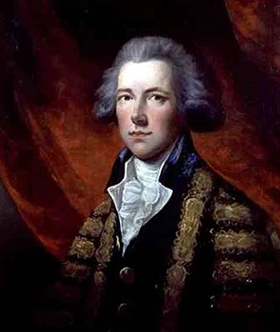 , William Pitt the Younger
, William Pitt the Younger
, class=nowrap ,
1782 , class=nowrap ,
1783 , , Whig , , Shelburne
, - style="height:1em" , style="background-color:" , , , Lord John Cavendish
, Lord John Cavendish
, class=nowrap ,
1783 , class=nowrap ,
1783 , , Whig , , Fox–North , - style="height:1em" , style="background-color:" , , , William Pitt the Younger
, William Pitt the Younger
} , class=nowrap ,
1783 , class=nowrap ,
1801 , , Tory , , Pitt I , - style="height:1em" , style="background-color:" , , , Henry Addington
, Henry Addington
, class=nowrap ,
1801 , class=nowrap ,
1804 , , Tory , , , William Pitt the Younger
, William Pitt the Younger
, class=nowrap ,
1804 , class=nowrap ,
1806 , , Tory , , Pitt II , - style="height:1em" , style="background-color:" , , , Edward Law
, Edward Law
1st Baron Ellenborough
Lord Chief Justice (''interim'') , class=nowrap , ''
1806'' , class=nowrap , ''
1806'' , , Tory , rowspan=2 , All the Talents
, - style="height:1em" , style="background-color:" , , , Lord Henry Petty-Fitzmaurice
, Lord Henry Petty-Fitzmaurice
, class=nowrap ,
1806 , class=nowrap ,
1807 , , Whig , - style="height:1em" , rowspan=2 style="background-color:" , , rowspan=2 , , rowspan=2 , Spencer Perceval
, rowspan=2 , Spencer Perceval
, class=nowrap rowspan=2 ,
1807 , class=nowrap rowspan=2 ,
1812 , rowspan=2 , Tory , , Portland II , - style="height:1em" , , Perceval , - style="height:1em" , style="background-color:" , , , Nicholas Vansittart
, Nicholas Vansittart
} , class=nowrap ,
1812 , class=nowrap ,
1817 , , Tory , , Liverpool
 , Thomas Denman
, Thomas Denman
1st Baron Denman
, ''14 November 1834'' , ''15 December 1834'' , , Whig , , Wellington Caretaker , - style="height:1em" , style="background-color:" , , ,
,
MP for Tamworth , 15 December 1834 , 8 April 1835 , , Conservative , , Peel I , - style="height:1em" , style="background-color:; border-bottom:none" , , rowspan=2 , , rowspan=2 , Thomas Spring Rice
, rowspan=2 , Thomas Spring Rice
, rowspan=2 , 18 April 1835 , rowspan=2 , 26 August 1839 , rowspan=2 , Whig , rowspan=3 , Melbourne II , - style="height:1em" , style="background-color:; border-top:none" , ! scope=row style="text-align:center" rowspan=24 , Victoria

, - style="height:1em" , style="background-color:" , , , Francis Baring
, Francis Baring
, 26 August 1839 , 30 August 1841 , , Whig , - style="height:1em" , style="background-color:" , , , Henry Goulburn
, Henry Goulburn
, 3 September 1841 , 27 June 1846 , , Conservative , , Peel II , - style="height:1em" , style="background-color:" , , , Charles Wood
, Charles Wood
, 6 July 1846 , 21 February 1852 , , Whig , , ,
,
, 27 February 1852 , 17 December 1852 , , Conservative , , Who? Who? , - style="height:1em" , style="background-color:" , , , William Ewart Gladstone
, William Ewart Gladstone
, 28 December 1852 , 28 February 1855 , ,
, - style="height:1em" , style="background-color:" , , , George Cornewall Lewis
, George Cornewall Lewis
, 28 February 1855 , 21 February 1858 , , Whig , , Palmerston I , - style="height:1em" , style="background-color:" , , ,
,
, 26 February 1858 , 11 June 1859 , , Conservative , , Derby–Disraeli II , - style="height:1em" , rowspan=2 style="background-color:" , , rowspan=2 , , rowspan=2 , William Ewart Gladstone
, rowspan=2 , William Ewart Gladstone
} , rowspan=2 , 18 June 1859 , rowspan=2 , 26 June 1866 , rowspan=2 , Liberal , , Palmerston II , - style="height:1em" , , Russell II , - style="height:1em" , style="background-color:" , , ,
,
, 6 July 1866 , 29 February 1868 , , Conservative , rowspan=2 , Derby–Disraeli III , - style="height:1em" , style="background-color:" , , , George Ward Hunt
, 29 February 1868 , 1 December 1868 , , Conservative , - style="height:1em" , style="background-color:" , , ,
,
, 9 December 1868 , 11 August 1873 , , Liberal , rowspan=2 , Gladstone I , - style="height:1em" , style="background-color:" , , , William Ewart Gladstone
, William Ewart Gladstone
, 11 August 1873 , 17 February 1874 , , Liberal , - style="height:1em" , style="background-color:" , , , Stafford Northcote
, Stafford Northcote
, 21 February 1874 , 21 April 1880 , , Conservative , , Disraeli II , - style="height:1em" , style="background-color:" , , , William Ewart Gladstone
, William Ewart Gladstone
, 28 April 1880 , 16 December 1882 , , Liberal , rowspan=2 , Gladstone II , - style="height:1em" , style="background-color:" , ,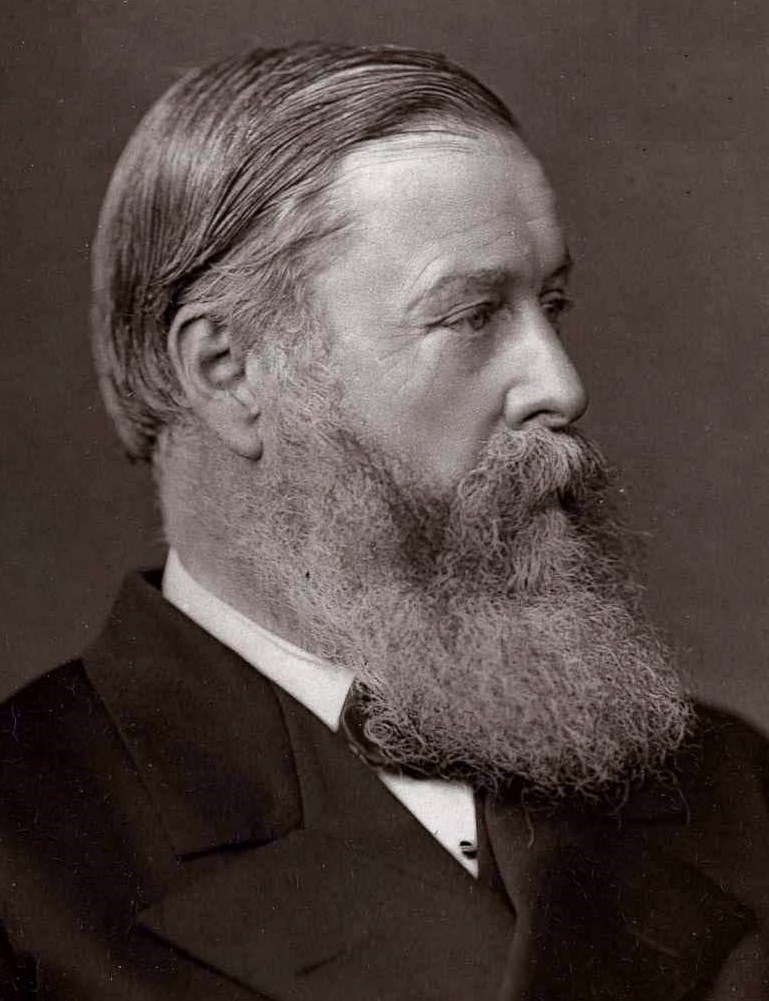 , Hugh Childers
, Hugh Childers
, 16 December 1882 , 9 June 1885 , , Liberal , - style="height:1em" , style="background-color:" , , , Michael Hicks Beach
, Michael Hicks Beach
, 24 June 1885 , 28 January 1886 , , Conservative , , Salisbury I , - style="height:1em" , style="background-color:" , , , William Harcourt
, William Harcourt
, 6 February 1886 , 20 July 1886 , , Liberal , , Gladstone III , - style="height:1em" , style="background-color:" , , , Lord Randolph Churchill
, Lord Randolph Churchill
, 3 August 1886 , 22 December 1886 , , Conservative , rowspan=2 , Salisbury II , - style="height:1em" , style="background-color:" , ,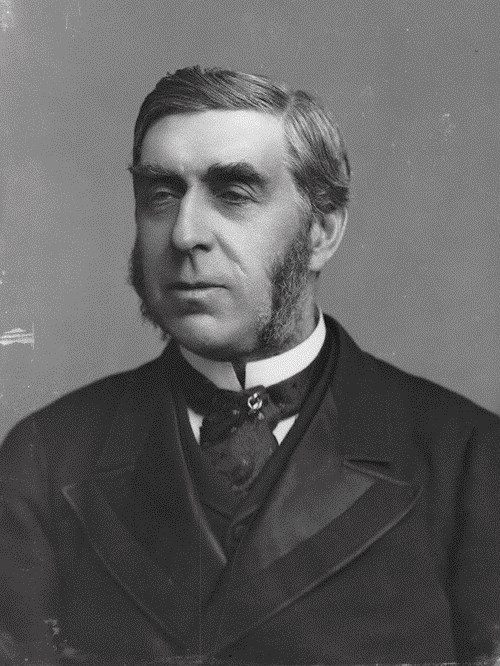 , George Goschen
, George Goschen
, 14 January 1887 , 11 August 1892 , , Liberal Unionist , - style="height:1em" , rowspan=2 style="background-color:" , , rowspan=2 , , rowspan=2 , William Harcourt
, rowspan=2 , William Harcourt
, rowspan=2 , 18 August 1892 , rowspan=2 , 21 June 1895 , rowspan=2 , Liberal , , Gladstone IV , - style="height:1em" , , Rosebery , - style="height:1em" , style="background-color:; border-bottom:none" , , rowspan=2 , , rowspan=2 , Michael Hicks Beach
, rowspan=2 , Michael Hicks Beach
, rowspan=2 , 29 June 1895 , rowspan=2 , 11 August 1902 , rowspan=2 , Conservative , rowspan=2 , Salisbury
, - style="height:1em" , style="background-color:; border-top:none" , ! scope=row style="text-align:center" rowspan=5 , Edward VII

, - style="height:1em" , style="background-color:" , , , Charles Ritchie
, Charles Ritchie
, 11 August 1902 , 9 October 1903 , , Conservative , rowspan=2 , , Austen Chamberlain
, Austen Chamberlain
, 9 October 1903 , 4 December 1905 , , Liberal Unionist , - style="height:1em" , style="background-color:" , , , Herbert Henry Asquith
, Herbert Henry Asquith
, 10 December 1905 , 16 April 1908 , , Liberal , , Campbell-Bannerman , - style="height:1em" , style="background-color:; border-bottom:none" , , rowspan=2 , , rowspan=2 , David Lloyd George
, rowspan=2 , David Lloyd George
, rowspan=2 , 16 April 1908 , rowspan=2 , 25 May 1915 , rowspan=2 , Liberal , rowspan=2 , Asquith
, - style="height:1em" , style="background-color:; border-top:none" , ! scope=row style="text-align:center" rowspan=14 , George V

, - style="height:1em" , style="background-color:" , , , Reginald McKenna
, Reginald McKenna
, 25 May 1915 , 10 December 1916 , , Liberal , , Asquith Coalition
, - style="height:1em" , style="background-color:" , ,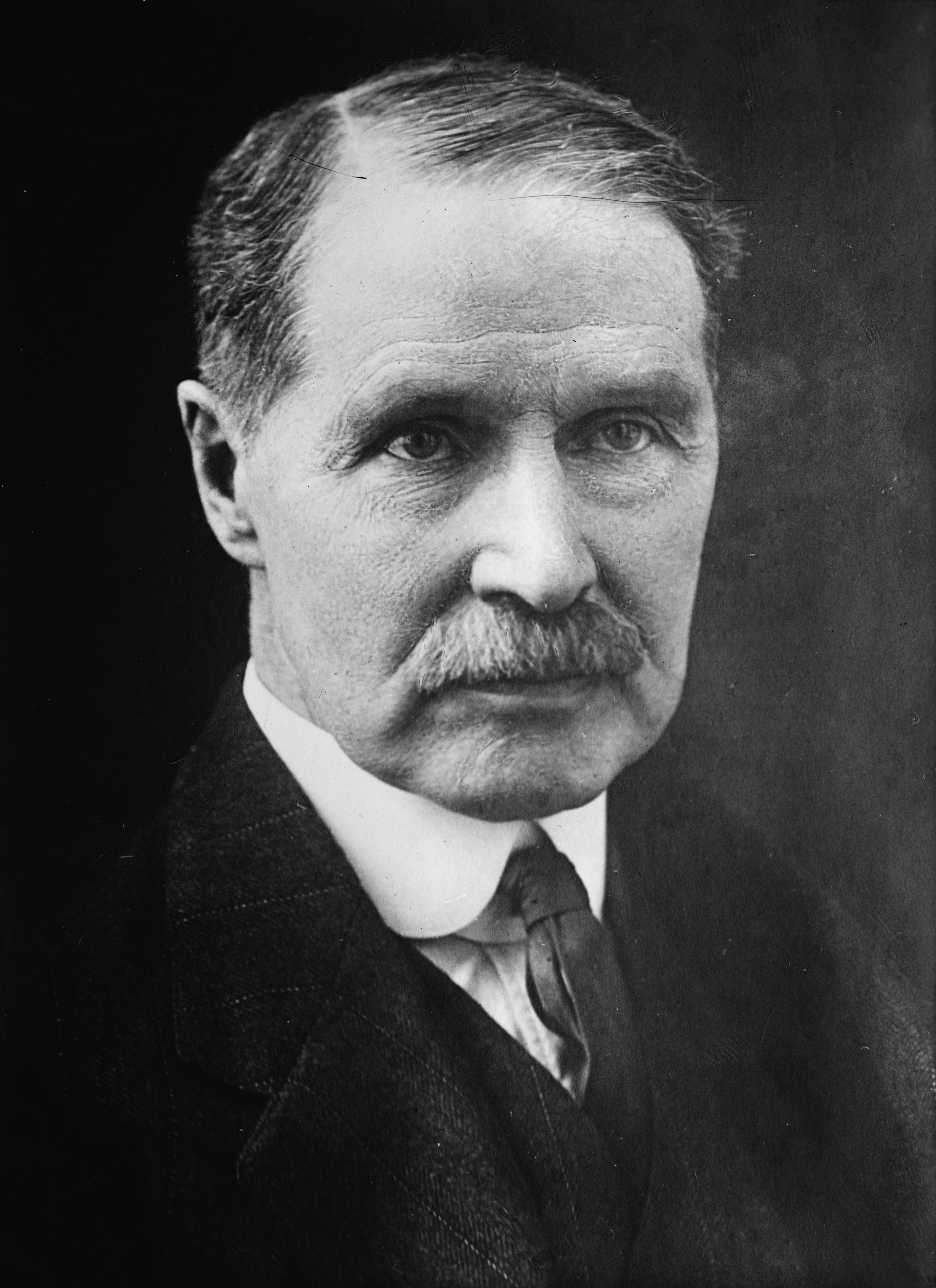 ,
,
} , 10 December 1916 , 10 January 1919 , , Conservative , rowspan=3 , Lloyd George
, - style="height:1em" , style="background-color:" , , , Austen Chamberlain
, Austen Chamberlain
, 10 January 1919 , 1 April 1921 , , Conservative , - style="height:1em" , style="background-color:" , ,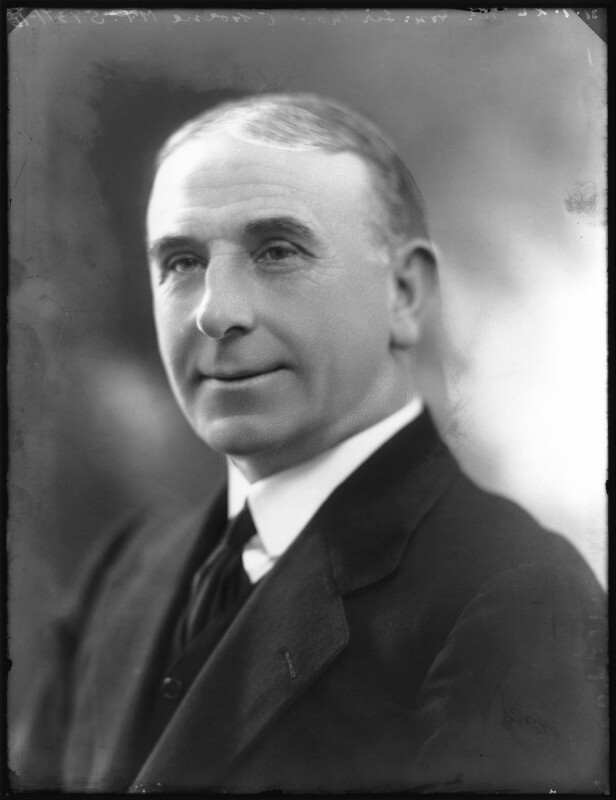 , Robert Horne
, Robert Horne
, 1 April 1921 , 19 October 1922 , , Conservative , - style="height:1em" , style="background-color:; border:none" , , rowspan=2 ,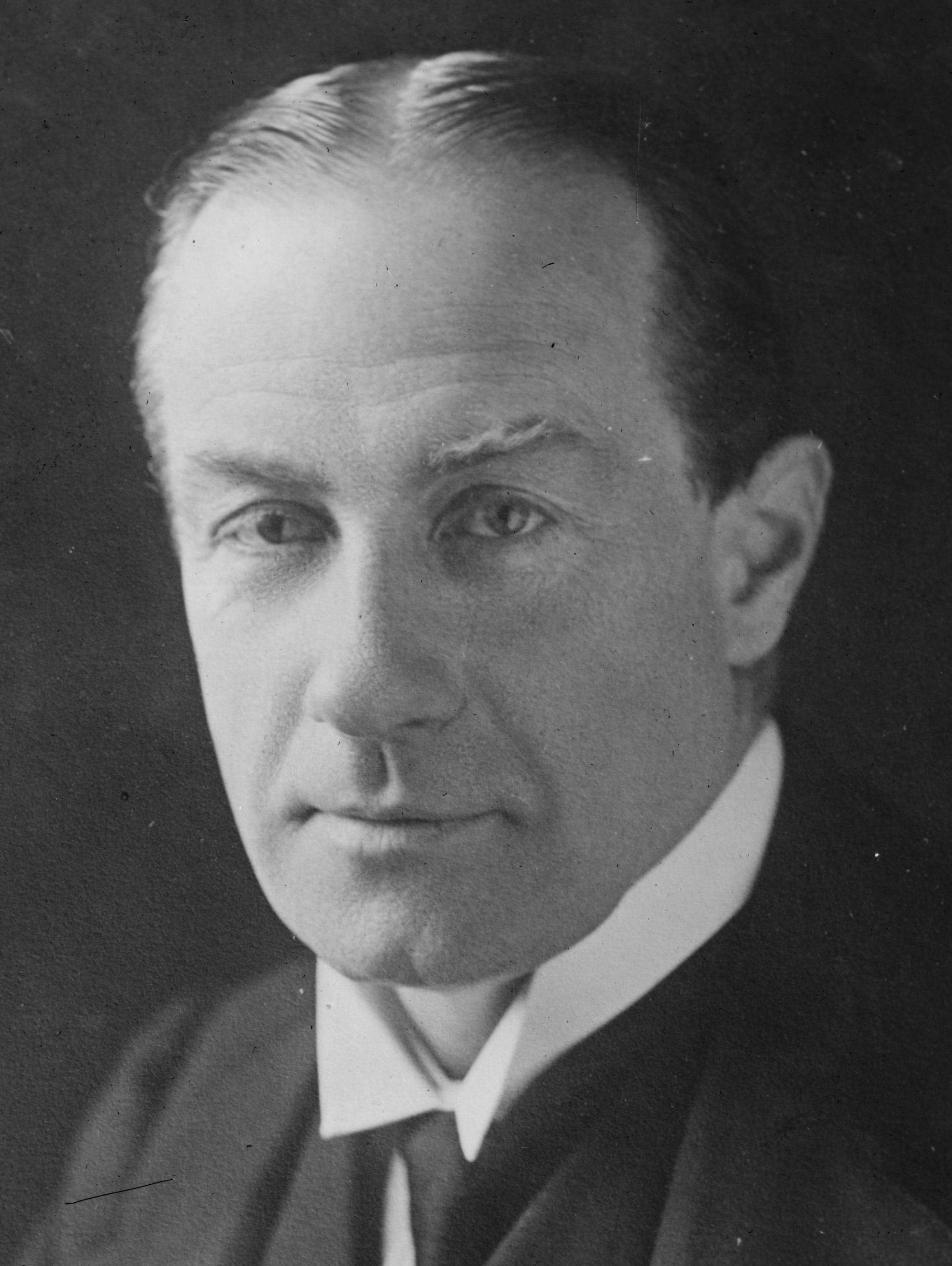 , rowspan=2 ,
, rowspan=2 ,
, rowspan=2 , 27 October 1922 , rowspan=2 , 27 August 1923 , rowspan=2 , Conservative , , Law , - style="height:1em" , style="background-color:; border:none" , , rowspan=2 , Baldwin I , - style="height:1em" , style="background-color:" , ,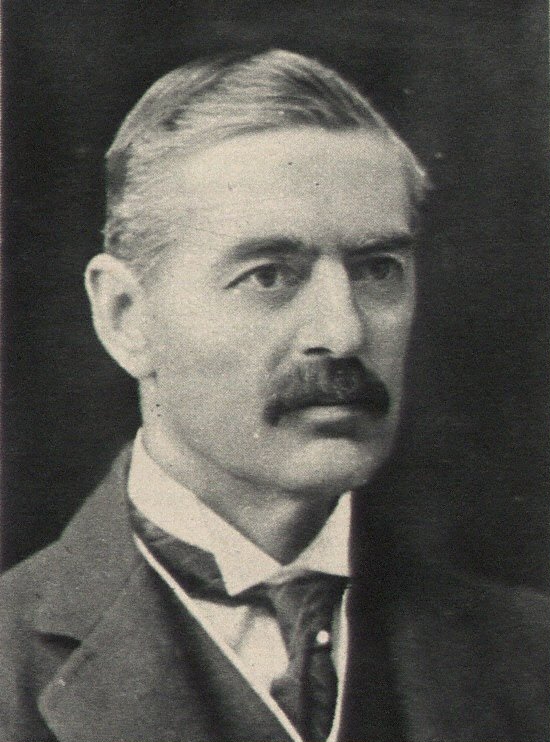 ,
,
, 27 August 1923 , 22 January 1924 , , Conservative , - style="height:1em" , style="background-color:" , , , Philip Snowden
, Philip Snowden
, 22 January 1924 , 3 November 1924 , , Labour , , MacDonald I , - style="height:1em" , style="background-color:" , , ,
,
, 6 November 1924 , 4 June 1929 , , Conservative , , Baldwin II , - style="height:1em" , style="background-color:" , , rowspan=2 , , rowspan=2 , Philip Snowden
, rowspan=2 , Philip Snowden
, rowspan=2 , 7 June 1929 , rowspan=2 , 5 November 1931 , , Labour , ,
, - style="height:1em" , style="background-color:; border: none" , , rowspan=4 , , rowspan=4 ,
, rowspan=4 ,
, rowspan=4 , 5 November 1931 , rowspan=4 , 28 May 1937 , rowspan=4 , Conservative , , National II , - style="height:1em" , style="background-color:; border: none" , , rowspan=3 , National III
, - style="height:1em" , style="background-color:; border: none" , ! scope=row style="text-align:center" ,

, - style="height:1em" , style="background-color:; border: none" , ! scope=row style="text-align:center" rowspan=10 , George VI

, - style="height:1em" , rowspan=2 style="background-color:" , , rowspan=2 , , rowspan=2 , John Simon
, rowspan=2 , John Simon
, rowspan=2 , 28 May 1937 , rowspan=2 , 12 May 1940 , rowspan=2 , Liberal National , , National IV , - style="height:1em" , , Chamberlain War , - style="height:1em" , style="background-color:" , , , Kingsley Wood
, Kingsley Wood
, 12 May 1940 , 21 September 1943 , , Conservative , rowspan=2 , Churchill War
, - style="height:1em" , style="background-color:; border:none" , , rowspan=2 ,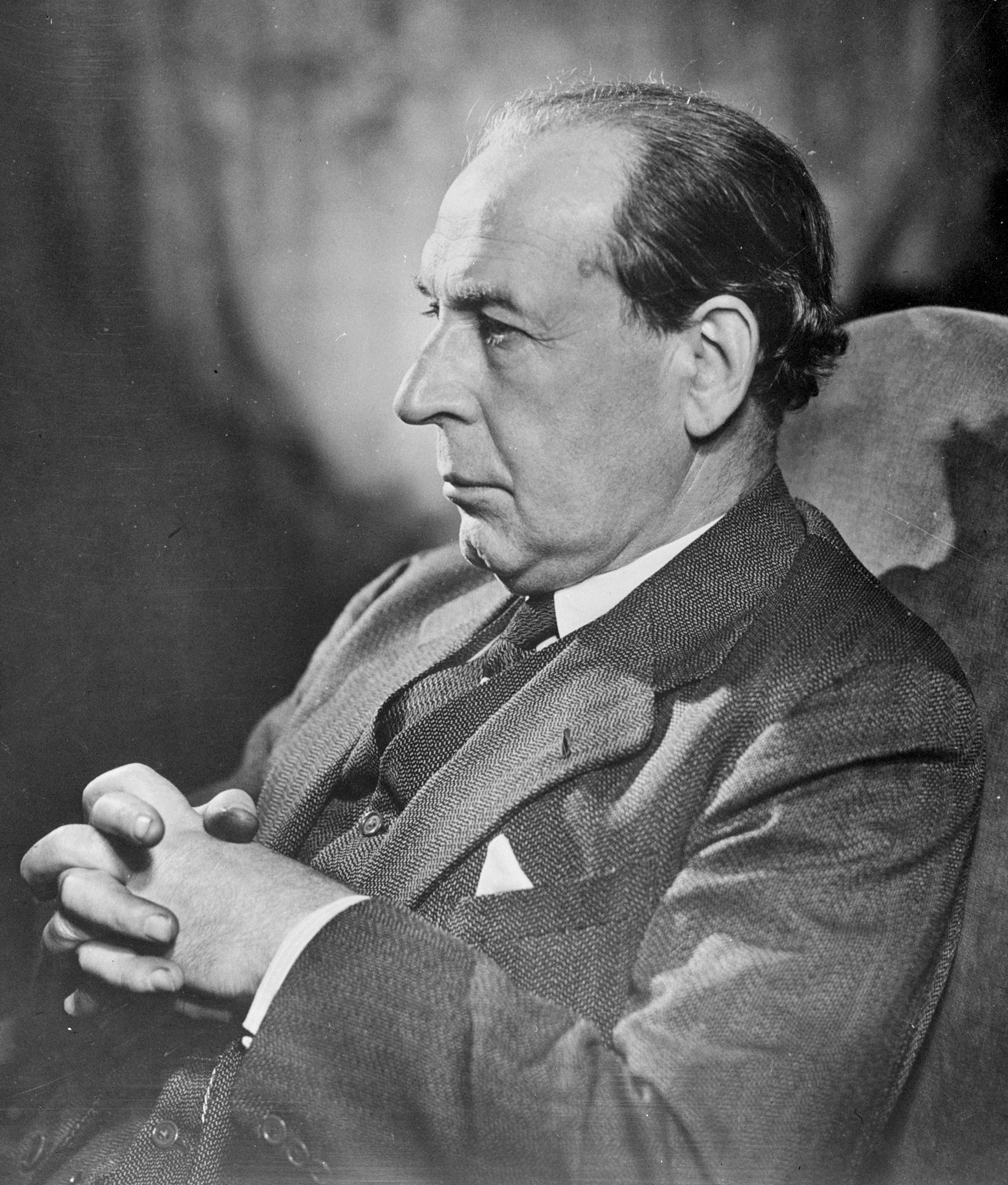 , rowspan=2 , John Anderson
, rowspan=2 , John Anderson
, rowspan=2 , 24 September 1943 , rowspan=2 , 26 July 1945 , rowspan=2 , Independent
, - style="height:1em" , style="background-color:; border:none" , , , Churchill Caretaker
, - style="height:1em" , style="background-color:" , , ,
,
, 27 July 1945 , 13 November 1947 , , Labour , rowspan=3 , Attlee
, - style="height:1em" , style="background-color:" , ,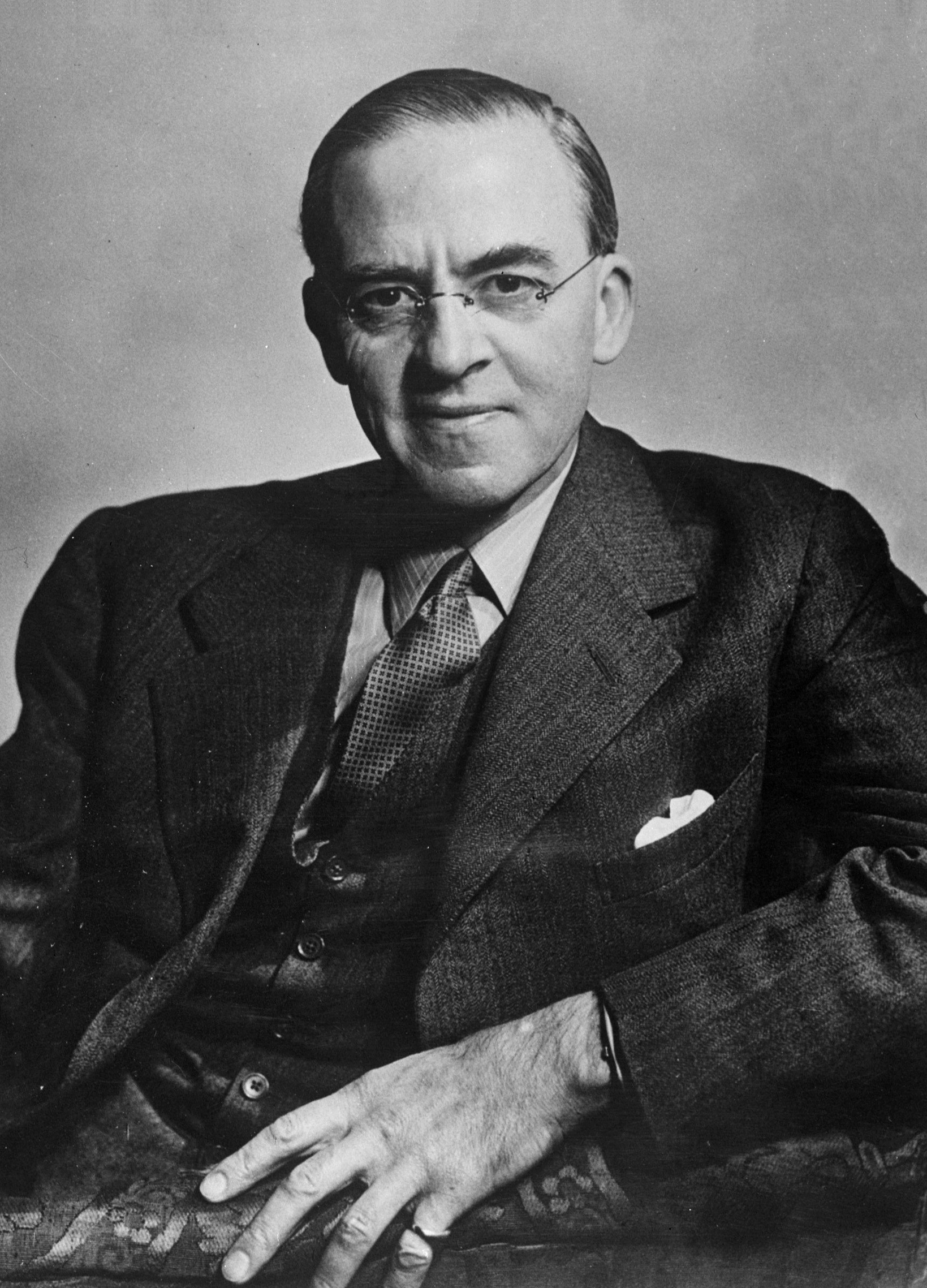 ,
,
} , 13 November 1947 , 19 October 1950 , , Labour , - style="height:1em" , style="background-color:" , ,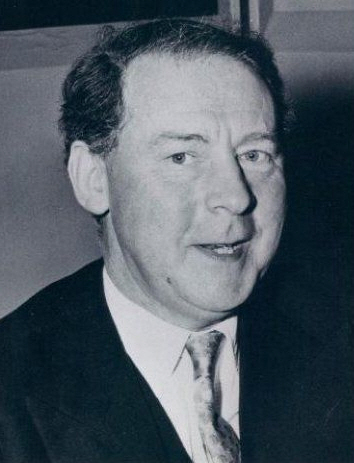 ,
,
, 19 October 1950 , 26 October 1951 , , Labour , - style="height:1em" , height=20 style="background-color: ; border-bottom:none" , , rowspan=3 , , rowspan=3 ,
, rowspan=3 ,
, rowspan=3 , 26 October 1951 , rowspan=3 , 20 December 1955 , rowspan=3 , Conservative , rowspan=2 , Churchill III , - style="height:1em" , height=20 style="background-color: ; border:none" , ! scope=row style="text-align:center" rowspan=32 , Elizabeth II

, - style="height:1em" , height=20 style="background-color: ; border-top:none" , , rowspan=2 , ,
,
, 20 December 1955 , 13 January 1957 , , Conservative , - style="height:1em" , style="background-color:" , ,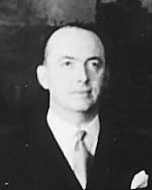 , Peter Thorneycroft
, Peter Thorneycroft
, 13 January 1957 , 6 January 1958 , , Conservative , rowspan=4 , Macmillan
, - style="height:1em" , style="background-color:" , , , Derick Heathcoat-Amory
, Derick Heathcoat-Amory
, 6 January 1958 , 27 July 1960 , , Conservative , - style="height:1em" , style="background-color:" , , , Selwyn Lloyd
, Selwyn Lloyd
, 27 July 1960 , 13 July 1962 , , Conservative , - style="height:1em" , style="background-color:; border:none" , , rowspan=2 , , rowspan=2 , Reginald Maudling
, rowspan=2 , 16 July 1962 , rowspan=2 , 16 October 1964 , rowspan=2 , Conservative , - style="height:1em" , style="background-color:; border:none" , , , Douglas-Home , - style="height:1em" , style="background-color:" , , ,
,
, 17 October 1964 , 29 November 1967 , , Labour , rowspan=2 , Wilson
, - style="height:1em" , style="background-color:" , , ,
,
, 29 November 1967 , 19 June 1970 , , Labour , - style="height:1em" , style="background-color:" , ,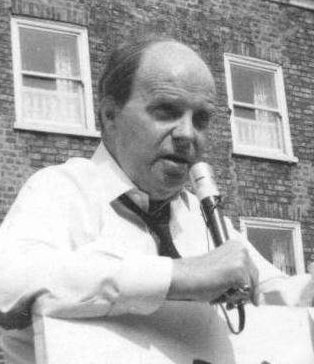 ,
,
, 20 June 1970 , 20 July 1970 , , Conservative , rowspan=2 , Heath , - style="height:1em" , style="background-color:" , , ,
, 25 July 1970 , 4 March 1974 , , Conservative , - style="height:1em" , rowspan=2 style="background-color:" , , rowspan=2 ,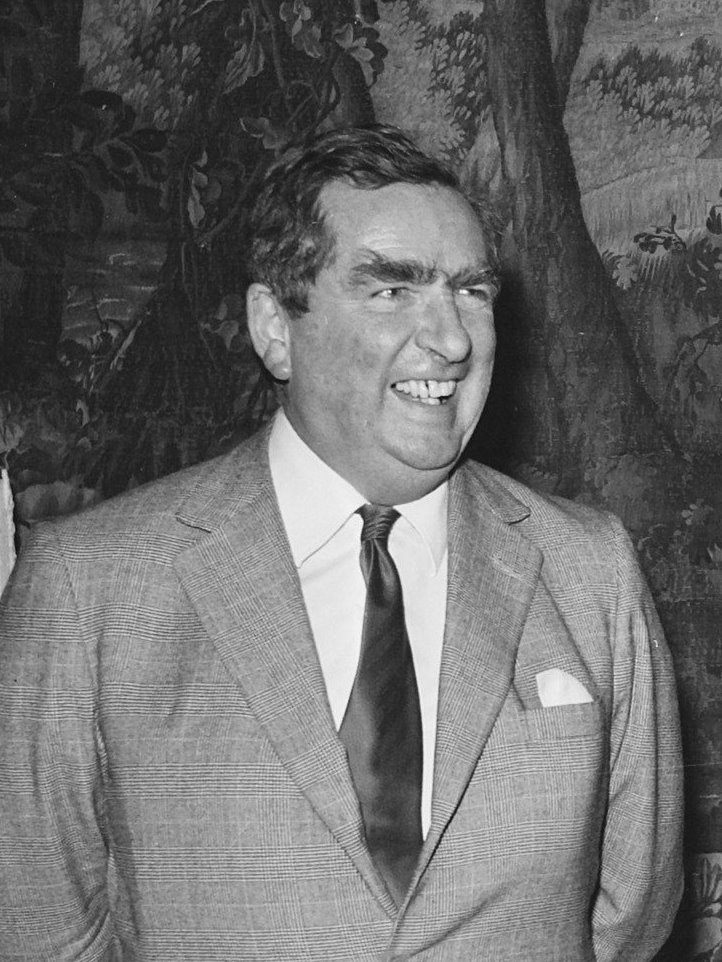 , rowspan=2 ,
, rowspan=2 ,
, rowspan=2 , 5 March 1974 , rowspan=2 , 4 May 1979 , rowspan=2 , Labour , , Wilson
, - style="height:1em" , , Callaghan , - style="height:1em" , style="background-color:" , ,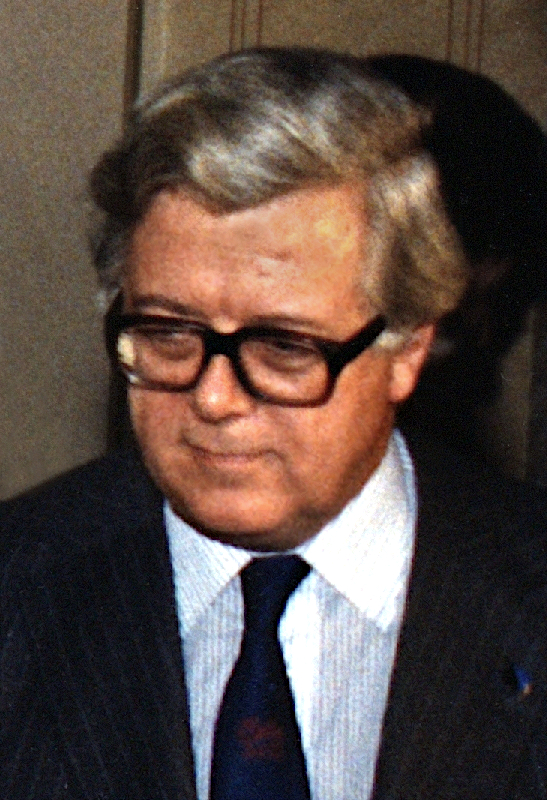 , Geoffrey Howe
, Geoffrey Howe
, 4 May 1979 , 11 June 1983 , , Conservative , , Thatcher I , - style="height:1em" , style="background-color:; border:none" , , rowspan=2 , , rowspan=2 , Nigel Lawson
, rowspan=2 , Nigel Lawson
, rowspan=2 , 11 June 1983 , rowspan=2 , 26 October 1989 , rowspan=2 , Conservative , , Thatcher II , - style="height:1em" , style="background-color:; border:none" , , rowspan=2 , Thatcher III , - style="height:1em" , style="background-color:" , , ,
,
, 26 October 1989 , 28 November 1990 , , Conservative , - style="height:1em" , style="background-color:; border:none" , , rowspan=2 ,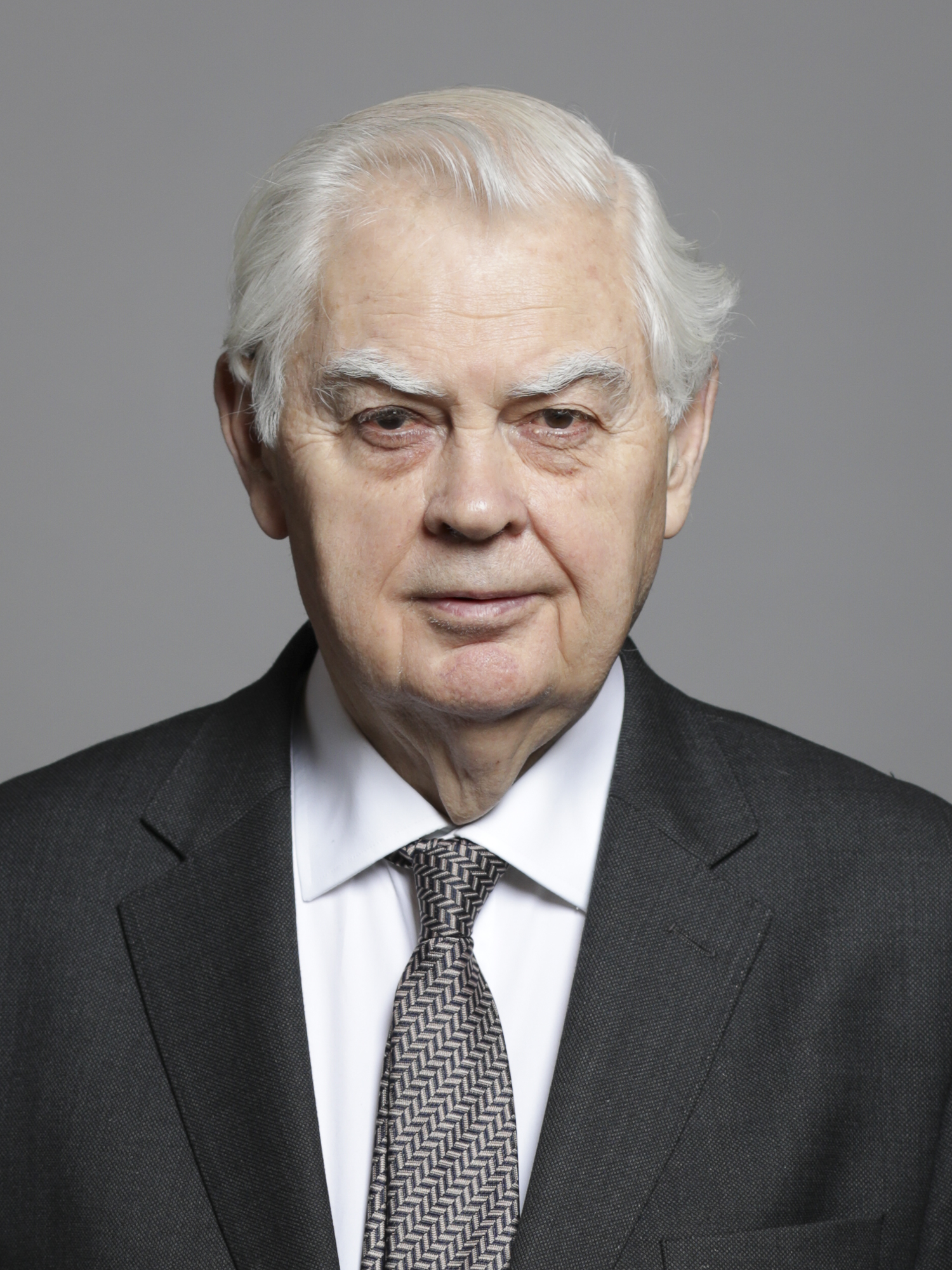 , rowspan=2 , Norman Lamont
, rowspan=2 , Norman Lamont
, rowspan=2 , 28 November 1990 , rowspan=2 , 27 May 1993 , rowspan=2 , Conservative , , Major I , - style="height:1em" , style="background-color:; border:none" , , rowspan=2 , Major II , - style="height:1em" , style="background-color:" , , , Kenneth Clarke
, Kenneth Clarke
, 27 May 1993 , 2 May 1997 , , Conservative , - style="height:1em" , style="background-color:" , ,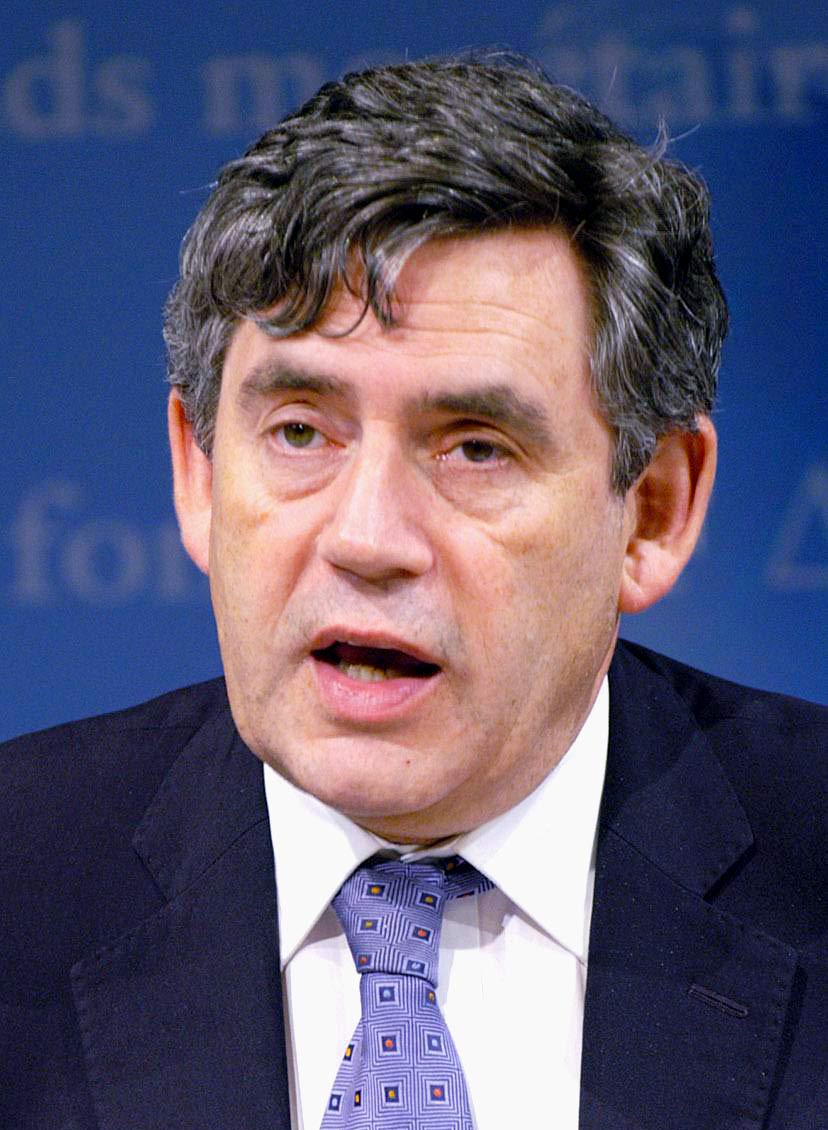 , Gordon Brown
, Gordon Brown
} , 2 May 1997 , 27 June 2007 , , Labour , , Blair
, - style="height:1em" , style="background-color:" , ,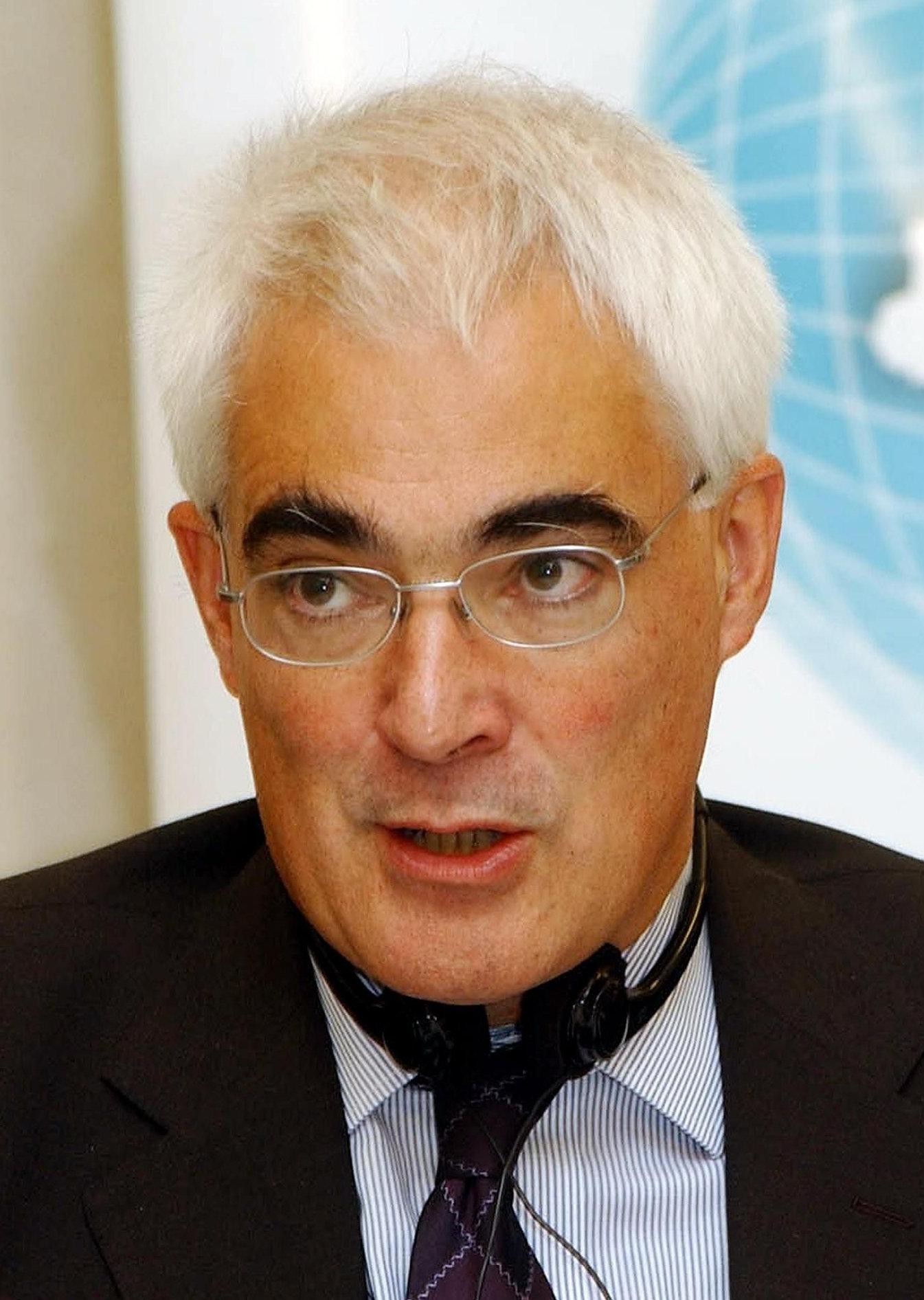 , Alistair Darling
, Alistair Darling
, 28 June 2007 , 11 May 2010 , , Labour , , Brown , - style="height:1em" , rowspan=2 style="background-color:" , , rowspan=2 , , rowspan=2 , George Osborne
, rowspan=2 , George Osborne
, rowspan=2 , 11 May 2010 , rowspan=2 , 13 July 2016 , rowspan=2 , Conservative , , Cameron–Clegg
, - style="height:1em" , , Cameron II , - style="height:1em" , rowspan=2 style="background-color:" , , rowspan=2 , , rowspan=2 , Philip Hammond
, rowspan=2 , Philip Hammond
, rowspan=2 , 13 July 2016 , rowspan=2 , 24 July 2019 , rowspan=2 , Conservative , , May I , - style="height:1em" , , May II , - style="height:1em" , style="background-color:; border:none" , , rowspan=2 , , rowspan=2 , Sajid Javid
, rowspan=2 , Sajid Javid
, rowspan=2 , 24 July 2019 , rowspan=2 , 13 February 2020 , rowspan=2 , Conservative , , Johnson I , - style="height:1em" , style="background-color:; border:none" , , rowspan=3 , Johnson II , - style="height:1em" , style="background-color:" , , ,
,
, 13 February 2020 , 5 July 2022 , , Conservative , - style="height:1em" , style="background-color:" , ,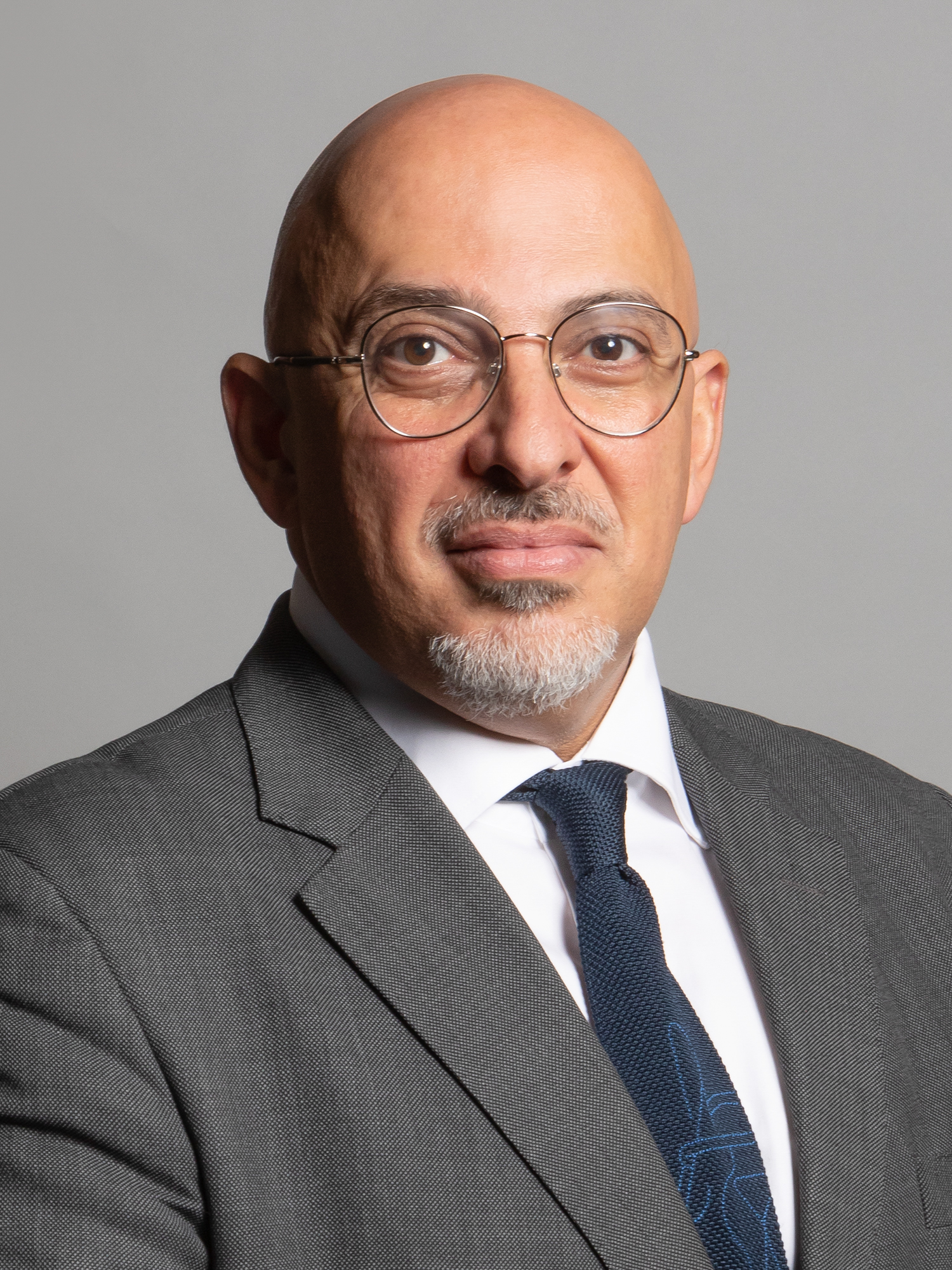 , Nadhim Zahawi
, Nadhim Zahawi
, 5 July 2022 , 6 September 2022 , , Conservative , - style="height:1em" , style="background-color: ; border: none" , , rowspan=2 ,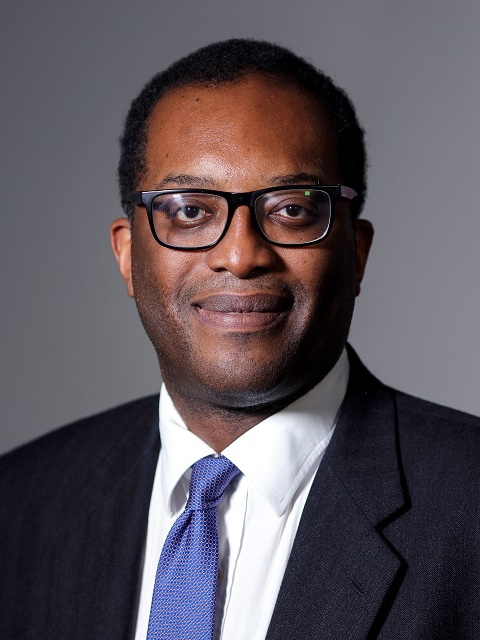 , rowspan=2 , Kwasi Kwarteng
, rowspan=2 , Kwasi Kwarteng
, rowspan=2 , 6 September 2022 , rowspan=2 , 14 October 2022 , rowspan=2 , Conservative , rowspan=3 , Truss , - style="height:1em" , style="background-color: ; border: none" , ! rowspan=3 scope=row style="text-align:Center" , Charles III

, - style="height:1em" , style="background-color: ; border: none" , , rowspan=2 , , rowspan=2 , Jeremy Hunt
, rowspan=2 , 14 October 2022 , rowspan=2 , ''Incumbent'' , rowspan=2 , Conservative , - style="height:1em" , style="background-color:; border:none" , , rowspan=1 , Sunak
online
* Browning, Peter. ''The Treasury and Economic Policy: 1964–1985'' (Longman, 1986). * Dell, Edmund. ''The Chancellors: A History of the Chancellors of the Exchequer, 1945–90'' (HarperCollins, 1997) 619pp; 17 chapters covering the terms of each chancellor. * Holt, Richard. ''Second Amongst Equals: Chancellors of the Exchequer and the British Economy'' (Profile Books, 2001). * Jenkins, Roy. ''The Chancellors'' (1998); 497pp; covers entire career as well as term in office of 19 chancellors from 1886 to 1947. * Kynaston, David. ''The chancellor of the exchequer'' (T. Dalton, 1980). * Peden, G. C. ''The Treasury and British Public Policy, 1906–1959'' (Oxford UP, 2000)
online
* Seldon, Anthony. ''The Impossible Office? The History of the British Prime Minister'' (2021
excerpt
major scholarly history. Covers the relations with Prime Minister in Chapter 9. * Vincent, Nicholas C. "The Origins of the Chancellorship of the Exchequer." ''English Historical Review'' 108.426 (1993): 105–121
in JSTOR
* Woodward, Nicholas. ''The management of the British economy, 1945–2001'' (Manchester University Press, 2004).
minister of the Crown
Minister of the Crown is a formal constitutional term used in Commonwealth realms to describe a minister of the reigning sovereign or viceroy. The term indicates that the minister serves at His Majesty's pleasure, and advises the sovereign or ...
within the Government of the United Kingdom, and head of His Majesty's Treasury. As one of the four Great Offices of State, the Chancellor is a high-ranking member of the British Cabinet.
Responsible for all economic and financial matters, the role is equivalent to that of a finance minister in other countries. The chancellor is now always Second Lord of the Treasury as one of at least six lords commissioners of the Treasury, responsible for executing the office of the Treasurer of the Exchequer the others are the prime minister and Commons government whips. In the 18th and early 19th centuries, it was common for the prime minister also to serve as Chancellor of the Exchequer if he sat in the Commons; the last Chancellor who was simultaneously prime minister and Chancellor of the Exchequer was Stanley Baldwin
Stanley Baldwin, 1st Earl Baldwin of Bewdley, (3 August 186714 December 1947) was a British Conservative Party politician who dominated the government of the United Kingdom between the world wars, serving as prime minister on three occasions, ...
in 1923. Formerly, in cases when the chancellorship was vacant, the Lord Chief Justice of the King's Bench would act as chancellor ''pro tempore''. The last Lord Chief Justice to serve in this way was Lord Denman
Baron Denman, of Dovedale in the County of Derby, is a title in the Peerage of the United Kingdom. It was created in 1834 for the prominent lawyer, judge and Whig politician Thomas Denman. He served as Lord Chief Justice of the King's Bench fro ...
in 1834.
The chancellor is the third-oldest major state office in English and British history, and in recent times has come to be the most powerful office in British politics after the prime minister. They originally carried responsibility for the Exchequer, the medieval English institution for the collection and auditing of royal revenues. The earliest surviving records which are the results of the exchequer's audit, date from 1129 to 1130 under King Henry I and show continuity from previous years.Chrimes, ''Administrative History'', pp. 62–63. The Chancellor has oversight of fiscal policy, therefore of taxation and public spending across government departments. It previously controlled monetary policy as well until 1997, when the Bank of England
The Bank of England is the central bank of the United Kingdom and the model on which most modern central banks have been based. Established in 1694 to act as the English Government's banker, and still one of the bankers for the Government of ...
was granted independent control of its interest rates.
Since 1718, all chancellors of the exchequer, except at times the lord chief justice as interim holders, have been members of the House of Commons with Lord Stanhope being the last chancellor from the House of Lords.
The office holder works alongside the other Treasury ministers and the permanent secretary to the Treasury. The corresponding shadow minister is the shadow chancellor of the Exchequer, and the chancellor is also scrutinised by the Liberal Democrat Treasury spokesperson and the Treasury Select Committee.
Second Lord of the Treasury
The holder of the office of Chancellor of the Exchequer is ''ex officio
An ''ex officio'' member is a member of a body (notably a board, committee, council) who is part of it by virtue of holding another office. The term '' ex officio'' is Latin, meaning literally 'from the office', and the sense intended is 'by right ...
'' Second Lord of the Treasury as a member of the commission exercising the ancient office of Treasurer of the Exchequer. As Second Lord, his official residence is 11 Downing Street
11 Downing Street (sometimes referred to as just Number 11) is the official residence of Britain's Chancellor of the Exchequer (who traditionally also has the title of Second Lord of the Treasury). The residence, in Downing Street in London, wa ...
in London, next door to the residence of the first lord of the Treasury (a title that has for many years been held by the prime minister), who resides in 10 Downing Street
10 Downing Street in London, also known colloquially in the United Kingdom as Number 10, is the official residence and executive office of the first lord of the treasury, usually, by convention, the prime minister of the United Kingdom. Along wi ...
. While in the past both houses were private residences, today they serve as interlinked offices, with the occupant living in an apartment made from attic rooms previously resided in by servants.
Since 1827, the chancellor has almost always held the office of Second Lord of the Treasury when that person has not also been the prime minister. A notable recent exception is Kwasi Kwarteng, whom Charles III appointed Second Lord on 18 October 2022, four days after Kwarteng had resigned the chancellorship.
Roles and responsibilities
A previous chancellor,Robert Lowe
Robert Lowe, 1st Viscount Sherbrooke, GCB, PC (4 December 1811 – 27 July 1892), British statesman, was a pivotal conservative spokesman who helped shape British politics in the latter half of the 19th century. He held office under William E ...
, described the office in the following terms in the House of Commons, on 11 April 1870: "The Chancellor of the Exchequer is a man whose duties make him more or less of a taxing machine. He is entrusted with a certain amount of misery which it is his duty to distribute as fairly as he can."
Fiscal policy
The chancellor has considerable control over other departments as it is the Treasury that sets Departmental Expenditure Limits. The amount of power this gives to an individual chancellor depends on their personal forcefulness, their status within their party and their relationship with the prime minister. Gordon Brown, who became chancellor when Labour came into Government in 1997, had a large personal power base in the party. Perhaps as a result, Tony Blair chose to keep him in the same position throughout his ten years as prime minister; making Brown an unusually dominant figure and the longest-serving chancellor since the Reform Act of 1832. This has strengthened a pre-existing trend towards the chancellor occupying a clear second position among government ministers, elevated above his traditional peers, theforeign secretary
The secretary of state for foreign, Commonwealth and development affairs, known as the foreign secretary, is a minister of the Crown of the Government of the United Kingdom and head of the Foreign, Commonwealth and Development Office. Seen as ...
and home secretary.
One part of the chancellor's key roles involves the framing of the annual year budget
A budget is a calculation play, usually but not always financial, for a defined period, often one year or a month. A budget may include anticipated sales volumes and revenues, resource quantities including time, costs and expenses, environmenta ...
. As of 2017, the first is the Autumn Budget, also known as Budget Day which forecasts government spending in the next financial year and also announces new financial measures. The second is a Spring Statement, also known as a "mini-Budget". Britain's tax year has retained the old Julian
Julian may refer to:
People
* Julian (emperor) (331–363), Roman emperor from 361 to 363
* Julian (Rome), referring to the Roman gens Julia, with imperial dynasty offshoots
* Saint Julian (disambiguation), several Christian saints
* Julian (give ...
end of year: 24 March (Old Style) / 5 April (New Style, i.e. Gregorian). From 1993, the Budget was in spring, preceded by an annual autumn statement. This was then called Pre-Budget Report. The Autumn Statement usually took place in November or December. The 1997, 2001, 2002, 2003, 2006, 2007
File:2007 Events Collage.png, From top left, clockwise: Steve Jobs unveils Apple's first iPhone; TAM Airlines Flight 3054 overruns a runway and crashes into a gas station, killing almost 200 people; Former Pakistani Prime Minister of Pakistan, Pr ...
, 2008
File:2008 Events Collage.png, From left, clockwise: Lehman Brothers went bankrupt following the Subprime mortgage crisis; Cyclone Nargis killed more than 138,000 in Myanmar; A scene from the opening ceremony of the 2008 Summer Olympics in Beijing; ...
, 2012
File:2012 Events Collage V3.png, From left, clockwise: The passenger cruise ship Costa Concordia lies capsized after the Costa Concordia disaster; Damage to Casino Pier in Seaside Heights, New Jersey as a result of Hurricane Sandy; People gather ...
and 2016 budgets were all delivered on a Wednesday, summarised in a speech to the House of Commons.
The budget is a state secret until the chancellor reveals it in his speech to Parliament. Hugh Dalton
Edward Hugh John Neale Dalton, Baron Dalton, (16 August 1887 – 13 February 1962) was a British Labour Party economist and politician who served as Chancellor of the Exchequer from 1945 to 1947. He shaped Labour Party foreign policy in the 1 ...
, on his way to giving the budget speech in 1947, inadvertently blurted out key details to a newspaper reporter, and they appeared in print before he made his speech. Dalton was forced to resign.
Monetary policy
Although theBank of England
The Bank of England is the central bank of the United Kingdom and the model on which most modern central banks have been based. Established in 1694 to act as the English Government's banker, and still one of the bankers for the Government of ...
is responsible for setting interest rates, the chancellor also plays an important part in the monetary policy structure. He sets the inflation target which the Bank must set interest rates to meet. Under the Bank of England Act 1998 the chancellor has the power of appointment of four out of nine members of the Bank's Monetary Policy Committee – the so-called 'external' members. He also has a high level of influence over the appointment of the Bank's Governor and Deputy Governors, and has the right of consultation over the appointment of the two remaining MPC members from within the Bank. The Act also provides that the Government has the power to give instructions to the Bank on interest rates for a limited period in extreme circumstances. This power has never been officially used.
Ministerial arrangements
At HM Treasury the chancellor is supported by a political team of four junior ministers and by permanentcivil servants
The civil service is a collective term for a sector of government composed mainly of career civil servants hired on professional merit rather than appointed or elected, whose institutional tenure typically survives transitions of political leaders ...
. The most important junior minister is the chief secretary to the Treasury, a member of the Cabinet, to whom the negotiations with other government departments on the details of government spending are delegated, followed by the paymaster general, the financial secretary to the Treasury and the economic secretary to the Treasury. Whilst not continuously in use, there can also be appointed a commercial secretary to the Treasury
The Commercial Secretary to the Treasury is a United Kingdom Government ministerial post in HM Treasury which usually ranks at Parliamentary Under-Secretary of State level - though during Baroness Neville-Rolfe’s tenure, it was of Minister of ...
and an exchequer secretary to the Treasury. Two other officials are given the title of a secretary to the Treasury, although neither is a government minister in the Treasury: the parliamentary secretary to the Treasury is the Government Chief Whip
The Chief Whip is a political leader whose task is to enforce the whipping system, which aims to ensure that legislators who are members of a political party attend and vote on legislation as the party leadership prescribes.
United Kingdom
...
in the House of Commons; the permanent secretary to the Treasury is not a minister
Minister may refer to:
* Minister (Christianity), a Christian cleric
** Minister (Catholic Church)
* Minister (government), a member of government who heads a ministry (government department)
** Minister without portfolio, a member of government w ...
but the senior civil servant in the Treasury.
The chancellor is obliged to be a member of the Privy Council
A privy council is a body that advises the head of state of a state, typically, but not always, in the context of a monarchic government. The word "privy" means "private" or "secret"; thus, a privy council was originally a committee of the mon ...
, and thus is styled the Right Honourable (Rt. Hon.). Because the House of Lords is excluded from financial matters by tradition confirmed by the Parliament Acts, the office is effectively limited to members of the House of Commons; apart from the occasions when the lord chief justice of the King's Bench has acted as interim Chancellor. The last peer to hold the office was Henry Booth, 2nd Baron Delamer
Henry Booth, 1st Earl of Warrington (13 January 1652 – 2 January 1694) was a Member of Parliament#United Kingdom, Member of Parliament, Privy Council of England, Privy Councillor, Protestant protagonist in the Glorious Revolution, Revolut ...
(created Earl of Warrington shortly after leaving office) from 9 April 1689 to 18 March 1690. The chancellor holds the formerly independent office of Master of the Mint as a subsidiary office.
Perquisites of the office
Official residence
The chancellor of the Exchequer has no official London residence as such but since 1828 in his role as Second Lord of the Treasury he lives in the second lord's official residence, No.11 Downing Street
11 Downing Street (sometimes referred to as just Number 11) is the official residence of Britain's Chancellor of the Exchequer (who traditionally also has the title of Second Lord of the Treasury). The residence, in Downing Street in London, wa ...
. In 1997, the then first and second Lords, Tony Blair and Gordon Brown respectively, swapped apartments, as the Chancellor's apartment in No. 11 was bigger and thus better suited to the needs of Blair (who had children living with him, including one born during his tenure) than Brown who was at that stage unmarried.
Dorneywood
Dorneywood is the summer residence that is traditionally made available to the chancellor, though it is the prime minister who ultimately decides who may use it. Gordon Brown, on becoming chancellor in 1997, refused to use it and the house, which is set in of parkland, was allocated to Deputy Prime Minister John Prescott. It reverted to the chancellor in 2007, then Alistair Darling.Budget box
 The chancellor traditionally carries his
The chancellor traditionally carries his budget speech
Budget Day is the day that a government presents its budget to a legislature for approval, in a ceremonial fashion. It only exists in some countries of the world.
India
The Union Budget of India, referred to as the Annual Financial Statement in ...
to the House of Commons in a particular red despatch Box. The chancellor's red briefcase is identical to the briefcases used by all other government ministers (known as ministerial boxes or "despatch boxes") to transport their official papers but is better known because the chancellor traditionally displays the briefcase, containing the budget speech, to the press in the morning before delivering the speech.
The original budget briefcase was first used by William Ewart Gladstone in 1853 and continued in use until 1965 when James Callaghan
Leonard James Callaghan, Baron Callaghan of Cardiff, ( ; 27 March 191226 March 2005), commonly known as Jim Callaghan, was Prime Minister of the United Kingdom from 1976 to 1979 and Leader of the Labour Party from 1976 to 1980. Callaghan is ...
was the first chancellor to break with tradition when he used a newer box. Prior to Gladstone, a generic red despatch box of varying design and specification was used. The practice is said to have begun in the late 16th century, when Queen Elizabeth I's representative Francis Throckmorton
Sir Francis Throckmorton (155410 July 1584) was a conspirator against Queen Elizabeth I of England in the Throckmorton Plot.
Life
He was the son of Sir John Throckmorton, who was the seventh out of eight sons of Sir George Throckmorton of C ...
presented the Spanish Ambassador, Bernardino de Mendoza, with a specially constructed red briefcase filled with black puddings.
In July 1997, Gordon Brown became the second chancellor to use a new box for the Budget. Made by industrial trainees at Babcock Rosyth Defence Ltd ship and submarine dockyard in Fife, the new box is made of yellow pine, with a brass handle and lock, covered in scarlet leather and embossed with the Royal cypher and crest and the Chancellor's title. In his first Budget, in March 2008, Alistair Darling reverted to using the original budget briefcase and his successor, George Osborne, continued this tradition for his first budget, before announcing that it would be retired due to its fragile condition. The key to the original budget box has been lost.
Budget tipple
By tradition, the chancellor has been allowed to drink whatever they wish while making the annual budget speech to Parliament. This includes alcohol, which is otherwise banned under parliamentary rules. Previous chancellors have opted for whisky ( Kenneth Clarke), gin and tonic ( Geoffrey Howe), brandy and water (Benjamin Disraeli
Benjamin Disraeli, 1st Earl of Beaconsfield, (21 December 1804 – 19 April 1881) was a British statesman and Conservative politician who twice served as Prime Minister of the United Kingdom. He played a central role in the creation o ...
and John Major
Sir John Major (born 29 March 1943) is a British former politician who served as Prime Minister of the United Kingdom and Leader of the Conservative Party (UK), Leader of the Conservative Party from 1990 to 1997, and as Member of Parliament ...
), spritzer ( Nigel Lawson) and sherry and beaten egg (William Gladstone
William Ewart Gladstone ( ; 29 December 1809 – 19 May 1898) was a British statesman and Liberal politician. In a career lasting over 60 years, he served for 12 years as Prime Minister of the United Kingdom, spread over four non-conse ...
).
The recent chancellors, Philip Hammond, George Osborne, Alistair Darling and Gordon Brown, opted for water. In fact Darling drank what was named "Standard Water" in reference to, and support of, the London ''Evening Standard'' newspaper's campaign to have plain tap water available in restaurants at no charge to customers.
Robe of office
The chancellor, as Master of the Mint, has a robe of office, similar to that of the lord chancellor (as seen in several of the portraits depicted below). In recent times, it has only regularly been worn at coronations, but some chancellors (at least until the 1990s) have also worn it when attending the Trial of the Pyx as Master of the Mint. According to George Osborne, the robe (dating from Gladstone's time in office, and worn by the likes ofLloyd George
David Lloyd George, 1st Earl Lloyd-George of Dwyfor, (17 January 1863 – 26 March 1945) was Prime Minister of the United Kingdom from 1916 to 1922. He was a Liberal Party (United Kingdom), Liberal Party politician from Wales, known for lea ...
and Churchill) 'went missing' during Gordon Brown's time as chancellor.
List of chancellors of the Exchequer
Chancellors of the Exchequer of England ( – )
: Died in office.Chancellors of the Exchequer of England ( – 1708)
Chancellors of the Exchequer of Great Britain (1708–1817)
, class=nowrap rowspan=2 ,1757 , class=nowrap rowspan=2 ,
1761 , rowspan=2 , Whig , rowspan=3 , Pitt–Newcastle , - style="height:1em" , style="background-color:; border-top:none" , ! scope=row style="text-align:center" rowspan=20 , George III
, - style="height:1em" , style="background-color:" , ,
 , William Barrington
, William Barrington2nd Viscount Barrington
, class=nowrap ,
1761 , class=nowrap ,
1762 , , Whig , - style="height:1em" , style="background-color:" , ,
 , Francis Dashwood
, Francis DashwoodMP for Weymouth and Melcombe Regis , class=nowrap ,
1762 , class=nowrap ,
1763 , , Tory , ,
Bute Bute or BUTE may refer to:
People
* Marquess of Bute, a title in the Peerage of Great Britain; includes lists of baronets, earls and marquesses of Bute
* Lord of Bute, a title in medieval Scotland, including a list of lords
* Lucian Bute (born ...
, - style="height:1em" , style="background-color:" , ,
 , George Grenville
, George Grenville, class=nowrap ,
1763 , class=nowrap ,
1765 , , Whig , , Grenville
, - style="height:1em" , style="background-color:" , ,
, class=nowrap ,
1765 , class=nowrap ,
1766 , , Whig , , Rockingham I , - style="height:1em" , style="background-color:" , ,
 ,
, Charles Townshend
Charles Townshend (28 August 1725 – 4 September 1767) was a British politician who held various titles in the Parliament of Great Britain. His establishment of the controversial Townshend Acts is considered one of the key causes of the Ame ...
, class=nowrap ,
1766 , class=nowrap ,
1767 , , Whig , rowspan=2 , Chatham
, - style="height:1em" , style="background-color:; border:none" , , rowspan=3 ,
 , rowspan=3 , Frederick North
, rowspan=3 , Frederick NorthLord North
, rowspan=3 class=nowrap ,
1767 , rowspan=3 class=nowrap ,
1782 , rowspan=3 , Tory , - style="height:1em" , rowspan=2 style="background-color:; border:none" , , ,
Grafton Grafton may refer to:
Places
Australia
* Grafton, New South Wales
Canada
* Grafton, New Brunswick
* Grafton, Nova Scotia
* Grafton, Ontario
England
* Grafton, Cheshire
* Grafton, Herefordshire
*Grafton, North Yorkshire
* Grafton, Oxfordshi ...
, - style="height:1em"
, , North
, - style="height:1em"
, style="background-color:" ,
,  , Lord John Cavendish
, Lord John Cavendish, class=nowrap ,
1782 , class=nowrap ,
1782 , , Whig , , Rockingham II , - style="height:1em" , style="background-color:" , ,
 , William Pitt the Younger
, William Pitt the Younger, class=nowrap ,
1782 , class=nowrap ,
1783 , , Whig , , Shelburne
, - style="height:1em" , style="background-color:" , ,
 , Lord John Cavendish
, Lord John Cavendish, class=nowrap ,
1783 , class=nowrap ,
1783 , , Whig , , Fox–North , - style="height:1em" , style="background-color:" , ,
 , William Pitt the Younger
, William Pitt the Younger} , class=nowrap ,
1783 , class=nowrap ,
1801 , , Tory , , Pitt I , - style="height:1em" , style="background-color:" , ,
 , Henry Addington
, Henry Addington, class=nowrap ,
1801 , class=nowrap ,
1804 , , Tory , ,
Addington Addington may refer to:
Places
In Australia:
* Addington, Victoria
In Canada:
* Addington, Ontario
* Addington County, Ontario (now Lennox and Addington County, Ontario)
* Addington Highlands, Ontario
* Addington Parish, New Brunswick
* Adding ...
, - style="height:1em"
, style="background-color:" ,
,  , William Pitt the Younger
, William Pitt the Younger, class=nowrap ,
1804 , class=nowrap ,
1806 , , Tory , , Pitt II , - style="height:1em" , style="background-color:" , ,
 , Edward Law
, Edward Law1st Baron Ellenborough
Lord Chief Justice (''interim'') , class=nowrap , ''
1806'' , class=nowrap , ''
1806'' , , Tory , rowspan=2 , All the Talents
, - style="height:1em" , style="background-color:" , ,
 , Lord Henry Petty-Fitzmaurice
, Lord Henry Petty-Fitzmaurice, class=nowrap ,
1806 , class=nowrap ,
1807 , , Whig , - style="height:1em" , rowspan=2 style="background-color:" , , rowspan=2 ,
 , rowspan=2 , Spencer Perceval
, rowspan=2 , Spencer Perceval, class=nowrap rowspan=2 ,
1807 , class=nowrap rowspan=2 ,
1812 , rowspan=2 , Tory , , Portland II , - style="height:1em" , , Perceval , - style="height:1em" , style="background-color:" , ,
 , Nicholas Vansittart
, Nicholas Vansittart} , class=nowrap ,
1812 , class=nowrap ,
1817 , , Tory , , Liverpool
Chancellors of the Exchequer of the United Kingdom (1817–present)
Although the Kingdoms of Great Britain and Ireland had been united by the Acts of Union 1800 (39 & 40 Geo. III c. 67), the Exchequers of the two Kingdoms were not consolidated until 1817 under 56 Geo. III c. 98. For the holders of the Irish office before this date, see Chancellor of the Exchequer of Ireland. , rowspan=2 , 22 November 1830 , rowspan=2 , 14 November 1834 , rowspan=2 , Whig , , Grey , - style="height:1em" , , Melbourne I , - style="height:1em" , style="background-color:" , , , Thomas Denman
, Thomas Denman1st Baron Denman
, ''14 November 1834'' , ''15 December 1834'' , , Whig , , Wellington Caretaker , - style="height:1em" , style="background-color:" , ,
 ,
, Robert Peel
Sir Robert Peel, 2nd Baronet, (5 February 1788 – 2 July 1850) was a British Conservative statesman who served twice as Prime Minister of the United Kingdom (1834–1835 and 1841–1846) simultaneously serving as Chancellor of the Exchequer ...
MP for Tamworth , 15 December 1834 , 8 April 1835 , , Conservative , , Peel I , - style="height:1em" , style="background-color:; border-bottom:none" , , rowspan=2 ,
 , rowspan=2 , Thomas Spring Rice
, rowspan=2 , Thomas Spring Rice, rowspan=2 , 18 April 1835 , rowspan=2 , 26 August 1839 , rowspan=2 , Whig , rowspan=3 , Melbourne II , - style="height:1em" , style="background-color:; border-top:none" , ! scope=row style="text-align:center" rowspan=24 , Victoria
, - style="height:1em" , style="background-color:" , ,
 , Francis Baring
, Francis Baring, 26 August 1839 , 30 August 1841 , , Whig , - style="height:1em" , style="background-color:" , ,
 , Henry Goulburn
, Henry Goulburn, 3 September 1841 , 27 June 1846 , , Conservative , , Peel II , - style="height:1em" , style="background-color:" , ,
 , Charles Wood
, Charles Wood, 6 July 1846 , 21 February 1852 , , Whig , ,
Russell I
Russell may refer to:
People
* Russell (given name)
* Russell (surname)
* Lady Russell (disambiguation)
* Lord Russell (disambiguation)
Places Australia
* Russell, Australian Capital Territory
* Russell Island, Queensland (disambiguation)
** ...
, - style="height:1em"
, style="background-color:" ,
,  ,
, Benjamin Disraeli
Benjamin Disraeli, 1st Earl of Beaconsfield, (21 December 1804 – 19 April 1881) was a British statesman and Conservative politician who twice served as Prime Minister of the United Kingdom. He played a central role in the creation o ...
, 27 February 1852 , 17 December 1852 , , Conservative , , Who? Who? , - style="height:1em" , style="background-color:" , ,
 , William Ewart Gladstone
, William Ewart Gladstone, 28 December 1852 , 28 February 1855 , ,
Peelite
The Peelites were a breakaway dissident political faction of the British Conservative Party from 1846 to 1859. Initially led by Robert Peel, the former Prime Minister and Conservative Party leader in 1846, the Peelites supported free trade whilst ...
, , Aberdeen, - style="height:1em" , style="background-color:" , ,
 , George Cornewall Lewis
, George Cornewall Lewis, 28 February 1855 , 21 February 1858 , , Whig , , Palmerston I , - style="height:1em" , style="background-color:" , ,
 ,
, Benjamin Disraeli
Benjamin Disraeli, 1st Earl of Beaconsfield, (21 December 1804 – 19 April 1881) was a British statesman and Conservative politician who twice served as Prime Minister of the United Kingdom. He played a central role in the creation o ...
, 26 February 1858 , 11 June 1859 , , Conservative , , Derby–Disraeli II , - style="height:1em" , rowspan=2 style="background-color:" , , rowspan=2 ,
 , rowspan=2 , William Ewart Gladstone
, rowspan=2 , William Ewart Gladstone} , rowspan=2 , 18 June 1859 , rowspan=2 , 26 June 1866 , rowspan=2 , Liberal , , Palmerston II , - style="height:1em" , , Russell II , - style="height:1em" , style="background-color:" , ,
 ,
, Benjamin Disraeli
Benjamin Disraeli, 1st Earl of Beaconsfield, (21 December 1804 – 19 April 1881) was a British statesman and Conservative politician who twice served as Prime Minister of the United Kingdom. He played a central role in the creation o ...
, 6 July 1866 , 29 February 1868 , , Conservative , rowspan=2 , Derby–Disraeli III , - style="height:1em" , style="background-color:" , , , George Ward Hunt
, 29 February 1868 , 1 December 1868 , , Conservative , - style="height:1em" , style="background-color:" , ,
 ,
, Robert Lowe
Robert Lowe, 1st Viscount Sherbrooke, GCB, PC (4 December 1811 – 27 July 1892), British statesman, was a pivotal conservative spokesman who helped shape British politics in the latter half of the 19th century. He held office under William E ...
, 9 December 1868 , 11 August 1873 , , Liberal , rowspan=2 , Gladstone I , - style="height:1em" , style="background-color:" , ,
 , William Ewart Gladstone
, William Ewart Gladstone, 11 August 1873 , 17 February 1874 , , Liberal , - style="height:1em" , style="background-color:" , ,
 , Stafford Northcote
, Stafford Northcote, 21 February 1874 , 21 April 1880 , , Conservative , , Disraeli II , - style="height:1em" , style="background-color:" , ,
 , William Ewart Gladstone
, William Ewart Gladstone, 28 April 1880 , 16 December 1882 , , Liberal , rowspan=2 , Gladstone II , - style="height:1em" , style="background-color:" , ,
 , Hugh Childers
, Hugh Childers, 16 December 1882 , 9 June 1885 , , Liberal , - style="height:1em" , style="background-color:" , ,
 , Michael Hicks Beach
, Michael Hicks Beach, 24 June 1885 , 28 January 1886 , , Conservative , , Salisbury I , - style="height:1em" , style="background-color:" , ,
 , William Harcourt
, William Harcourt, 6 February 1886 , 20 July 1886 , , Liberal , , Gladstone III , - style="height:1em" , style="background-color:" , ,
 , Lord Randolph Churchill
, Lord Randolph Churchill, 3 August 1886 , 22 December 1886 , , Conservative , rowspan=2 , Salisbury II , - style="height:1em" , style="background-color:" , ,
 , George Goschen
, George Goschen, 14 January 1887 , 11 August 1892 , , Liberal Unionist , - style="height:1em" , rowspan=2 style="background-color:" , , rowspan=2 ,
 , rowspan=2 , William Harcourt
, rowspan=2 , William Harcourt, rowspan=2 , 18 August 1892 , rowspan=2 , 21 June 1895 , rowspan=2 , Liberal , , Gladstone IV , - style="height:1em" , , Rosebery , - style="height:1em" , style="background-color:; border-bottom:none" , , rowspan=2 ,
 , rowspan=2 , Michael Hicks Beach
, rowspan=2 , Michael Hicks Beach, rowspan=2 , 29 June 1895 , rowspan=2 , 11 August 1902 , rowspan=2 , Conservative , rowspan=2 , Salisbury
, - style="height:1em" , style="background-color:; border-top:none" , ! scope=row style="text-align:center" rowspan=5 , Edward VII
, - style="height:1em" , style="background-color:" , ,
 , Charles Ritchie
, Charles Ritchie, 11 August 1902 , 9 October 1903 , , Conservative , rowspan=2 ,
Balfour Balfour may refer to:
People
Earls of Balfour
* Arthur James Balfour, 1st Earl of Balfour (1848–1930), British Conservative politician, Prime Minister of the UK (1902-1905), made the public statement of Balfour Declaration
* Gerald Balfour, 2n ...
, - style="height:1em"
, style="background-color:" ,
,  , Austen Chamberlain
, Austen Chamberlain, 9 October 1903 , 4 December 1905 , , Liberal Unionist , - style="height:1em" , style="background-color:" , ,
 , Herbert Henry Asquith
, Herbert Henry Asquith, 10 December 1905 , 16 April 1908 , , Liberal , , Campbell-Bannerman , - style="height:1em" , style="background-color:; border-bottom:none" , , rowspan=2 ,
 , rowspan=2 , David Lloyd George
, rowspan=2 , David Lloyd George, rowspan=2 , 16 April 1908 , rowspan=2 , 25 May 1915 , rowspan=2 , Liberal , rowspan=2 , Asquith
, - style="height:1em" , style="background-color:; border-top:none" , ! scope=row style="text-align:center" rowspan=14 , George V
, - style="height:1em" , style="background-color:" , ,
 , Reginald McKenna
, Reginald McKenna, 25 May 1915 , 10 December 1916 , , Liberal , , Asquith Coalition
, - style="height:1em" , style="background-color:" , ,
 ,
, Bonar Law
Andrew Bonar Law ( ; 16 September 1858 – 30 October 1923) was a British Conservative politician who served as Prime Minister of the United Kingdom from October 1922 to May 1923.
Law was born in the British colony of New Brunswick (now a ...
} , 10 December 1916 , 10 January 1919 , , Conservative , rowspan=3 , Lloyd George
, - style="height:1em" , style="background-color:" , ,
 , Austen Chamberlain
, Austen Chamberlain, 10 January 1919 , 1 April 1921 , , Conservative , - style="height:1em" , style="background-color:" , ,
 , Robert Horne
, Robert Horne, 1 April 1921 , 19 October 1922 , , Conservative , - style="height:1em" , style="background-color:; border:none" , , rowspan=2 ,
 , rowspan=2 ,
, rowspan=2 , Stanley Baldwin
Stanley Baldwin, 1st Earl Baldwin of Bewdley, (3 August 186714 December 1947) was a British Conservative Party politician who dominated the government of the United Kingdom between the world wars, serving as prime minister on three occasions, ...
, rowspan=2 , 27 October 1922 , rowspan=2 , 27 August 1923 , rowspan=2 , Conservative , , Law , - style="height:1em" , style="background-color:; border:none" , , rowspan=2 , Baldwin I , - style="height:1em" , style="background-color:" , ,
 ,
, Neville Chamberlain
Arthur Neville Chamberlain (; 18 March 18699 November 1940) was a British politician of the Conservative Party who served as Prime Minister of the United Kingdom from May 1937 to May 1940. He is best known for his foreign policy of appeasemen ...
, 27 August 1923 , 22 January 1924 , , Conservative , - style="height:1em" , style="background-color:" , ,
 , Philip Snowden
, Philip Snowden, 22 January 1924 , 3 November 1924 , , Labour , , MacDonald I , - style="height:1em" , style="background-color:" , ,
 ,
, Winston Churchill
Sir Winston Leonard Spencer Churchill (30 November 187424 January 1965) was a British statesman, soldier, and writer who served as Prime Minister of the United Kingdom twice, from 1940 to 1945 Winston Churchill in the Second World War, dur ...
, 6 November 1924 , 4 June 1929 , , Conservative , , Baldwin II , - style="height:1em" , style="background-color:" , , rowspan=2 ,
 , rowspan=2 , Philip Snowden
, rowspan=2 , Philip Snowden, rowspan=2 , 7 June 1929 , rowspan=2 , 5 November 1931 , , Labour , ,
MacDonald II
Macdonald, MacDonald or McDonald may refer to:
Organisations
* McDonald's, a chain of fast food restaurants
* McDonald & Co., a former investment firm
* MacDonald Motorsports, a NASCAR team
* Macdonald Realty, a Canadian real estate brokerage f ...
, - style="height:1em"
, style="background-color:" ,
, , National Labour
, , National I, - style="height:1em" , style="background-color:; border: none" , , rowspan=4 ,
 , rowspan=4 ,
, rowspan=4 , Neville Chamberlain
Arthur Neville Chamberlain (; 18 March 18699 November 1940) was a British politician of the Conservative Party who served as Prime Minister of the United Kingdom from May 1937 to May 1940. He is best known for his foreign policy of appeasemen ...
, rowspan=4 , 5 November 1931 , rowspan=4 , 28 May 1937 , rowspan=4 , Conservative , , National II , - style="height:1em" , style="background-color:; border: none" , , rowspan=3 , National III
, - style="height:1em" , style="background-color:; border: none" , ! scope=row style="text-align:center" ,
Edward VIII
Edward VIII (Edward Albert Christian George Andrew Patrick David; 23 June 1894 – 28 May 1972), later known as the Duke of Windsor, was King of the United Kingdom and the Dominions of the British Empire and Emperor of India from 20 January 19 ...
, - style="height:1em" , style="background-color:; border: none" , ! scope=row style="text-align:center" rowspan=10 , George VI
, - style="height:1em" , rowspan=2 style="background-color:" , , rowspan=2 ,
 , rowspan=2 , John Simon
, rowspan=2 , John Simon, rowspan=2 , 28 May 1937 , rowspan=2 , 12 May 1940 , rowspan=2 , Liberal National , , National IV , - style="height:1em" , , Chamberlain War , - style="height:1em" , style="background-color:" , ,
 , Kingsley Wood
, Kingsley Wood, 12 May 1940 , 21 September 1943 , , Conservative , rowspan=2 , Churchill War
, - style="height:1em" , style="background-color:; border:none" , , rowspan=2 ,
 , rowspan=2 , John Anderson
, rowspan=2 , John Anderson, rowspan=2 , 24 September 1943 , rowspan=2 , 26 July 1945 , rowspan=2 , Independent
, - style="height:1em" , style="background-color:; border:none" , , , Churchill Caretaker
, - style="height:1em" , style="background-color:" , ,
 ,
, Hugh Dalton
Edward Hugh John Neale Dalton, Baron Dalton, (16 August 1887 – 13 February 1962) was a British Labour Party economist and politician who served as Chancellor of the Exchequer from 1945 to 1947. He shaped Labour Party foreign policy in the 1 ...
, 27 July 1945 , 13 November 1947 , , Labour , rowspan=3 , Attlee
, - style="height:1em" , style="background-color:" , ,
 ,
, Stafford Cripps
Sir Richard Stafford Cripps (24 April 1889 – 21 April 1952) was a British Labour Party politician, barrister, and diplomat.
A wealthy lawyer by background, he first entered Parliament at a by-election in 1931, and was one of a handful of La ...
} , 13 November 1947 , 19 October 1950 , , Labour , - style="height:1em" , style="background-color:" , ,
 ,
, Hugh Gaitskell
Hugh Todd Naylor Gaitskell (9 April 1906 – 18 January 1963) was a British politician who served as Leader of the Labour Party and Leader of the Opposition from 1955 until his death in 1963. An economics lecturer and wartime civil servant, h ...
, 19 October 1950 , 26 October 1951 , , Labour , - style="height:1em" , height=20 style="background-color: ; border-bottom:none" , , rowspan=3 ,
 , rowspan=3 ,
, rowspan=3 , Richard Austen Butler
Richard Austen Butler, Baron Butler of Saffron Walden, (9 December 1902 – 8 March 1982), also known as R. A. Butler and familiarly known from his initials as Rab, was a prominent British Conservative Party politician. ''The Times'' obituary ...
, rowspan=3 , 26 October 1951 , rowspan=3 , 20 December 1955 , rowspan=3 , Conservative , rowspan=2 , Churchill III , - style="height:1em" , height=20 style="background-color: ; border:none" , ! scope=row style="text-align:center" rowspan=32 , Elizabeth II
, - style="height:1em" , height=20 style="background-color: ; border-top:none" , , rowspan=2 ,
Eden
Eden may refer to:
* Garden of Eden, the "garden of God" described in the Book of Genesis
Places and jurisdictions
Canada
* Eden, Ontario
* Eden High School
Middle East
* Eden, Lebanon, a city and former bishopric
* Camp Eden, Iraq
O ...
, - style="height:1em"
, style="background-color:" ,
,  ,
, Harold Macmillan
Maurice Harold Macmillan, 1st Earl of Stockton, (10 February 1894 – 29 December 1986) was a British Conservative statesman and politician who was Prime Minister of the United Kingdom from 1957 to 1963. Caricatured as "Supermac", he ...
, 20 December 1955 , 13 January 1957 , , Conservative , - style="height:1em" , style="background-color:" , ,
 , Peter Thorneycroft
, Peter Thorneycroft, 13 January 1957 , 6 January 1958 , , Conservative , rowspan=4 , Macmillan
, - style="height:1em" , style="background-color:" , ,
 , Derick Heathcoat-Amory
, Derick Heathcoat-Amory, 6 January 1958 , 27 July 1960 , , Conservative , - style="height:1em" , style="background-color:" , ,
 , Selwyn Lloyd
, Selwyn Lloyd, 27 July 1960 , 13 July 1962 , , Conservative , - style="height:1em" , style="background-color:; border:none" , , rowspan=2 , , rowspan=2 , Reginald Maudling
, rowspan=2 , 16 July 1962 , rowspan=2 , 16 October 1964 , rowspan=2 , Conservative , - style="height:1em" , style="background-color:; border:none" , , , Douglas-Home , - style="height:1em" , style="background-color:" , ,
 ,
, James Callaghan
Leonard James Callaghan, Baron Callaghan of Cardiff, ( ; 27 March 191226 March 2005), commonly known as Jim Callaghan, was Prime Minister of the United Kingdom from 1976 to 1979 and Leader of the Labour Party from 1976 to 1980. Callaghan is ...
, 17 October 1964 , 29 November 1967 , , Labour , rowspan=2 , Wilson
, - style="height:1em" , style="background-color:" , ,
 ,
, Roy Jenkins
Roy Harris Jenkins, Baron Jenkins of Hillhead, (11 November 1920 – 5 January 2003) was a British politician who served as President of the European Commission from 1977 to 1981. At various times a Member of Parliament (MP) for the Lab ...
, 29 November 1967 , 19 June 1970 , , Labour , - style="height:1em" , style="background-color:" , ,
 ,
, Iain Macleod
Iain Norman Macleod (11 November 1913 – 20 July 1970) was a British Conservative Party politician and government minister.
A playboy and professional bridge player in his twenties, after war service Macleod worked for the Conservative Researc ...
, 20 June 1970 , 20 July 1970 , , Conservative , rowspan=2 , Heath , - style="height:1em" , style="background-color:" , , ,
Anthony Barber
Anthony Perrinott Lysberg Barber, Baron Barber, (4 July 1920 – 16 December 2005) was a British Conservative politician who served as Chancellor of the Exchequer from 1970 to 1974.
After serving in both the Territorial Army and the Royal ...
, 25 July 1970 , 4 March 1974 , , Conservative , - style="height:1em" , rowspan=2 style="background-color:" , , rowspan=2 ,
 , rowspan=2 ,
, rowspan=2 , Denis Healey
Denis Winston Healey, Baron Healey, (30 August 1917 – 3 October 2015) was a British Labour Party (UK), Labour politician who served as Chancellor of the Exchequer from 1974 to 1979 and as Secretary of State for Defence from 1964 to 1970; he ...
, rowspan=2 , 5 March 1974 , rowspan=2 , 4 May 1979 , rowspan=2 , Labour , , Wilson
, - style="height:1em" , , Callaghan , - style="height:1em" , style="background-color:" , ,
 , Geoffrey Howe
, Geoffrey Howe, 4 May 1979 , 11 June 1983 , , Conservative , , Thatcher I , - style="height:1em" , style="background-color:; border:none" , , rowspan=2 ,
 , rowspan=2 , Nigel Lawson
, rowspan=2 , Nigel Lawson, rowspan=2 , 11 June 1983 , rowspan=2 , 26 October 1989 , rowspan=2 , Conservative , , Thatcher II , - style="height:1em" , style="background-color:; border:none" , , rowspan=2 , Thatcher III , - style="height:1em" , style="background-color:" , ,
 ,
, John Major
Sir John Major (born 29 March 1943) is a British former politician who served as Prime Minister of the United Kingdom and Leader of the Conservative Party (UK), Leader of the Conservative Party from 1990 to 1997, and as Member of Parliament ...
, 26 October 1989 , 28 November 1990 , , Conservative , - style="height:1em" , style="background-color:; border:none" , , rowspan=2 ,
 , rowspan=2 , Norman Lamont
, rowspan=2 , Norman Lamont, rowspan=2 , 28 November 1990 , rowspan=2 , 27 May 1993 , rowspan=2 , Conservative , , Major I , - style="height:1em" , style="background-color:; border:none" , , rowspan=2 , Major II , - style="height:1em" , style="background-color:" , ,
 , Kenneth Clarke
, Kenneth Clarke, 27 May 1993 , 2 May 1997 , , Conservative , - style="height:1em" , style="background-color:" , ,
} , 2 May 1997 , 27 June 2007 , , Labour , , Blair
, - style="height:1em" , style="background-color:" , ,
 , Alistair Darling
, Alistair Darling, 28 June 2007 , 11 May 2010 , , Labour , , Brown , - style="height:1em" , rowspan=2 style="background-color:" , , rowspan=2 ,
 , rowspan=2 , George Osborne
, rowspan=2 , George Osborne, rowspan=2 , 11 May 2010 , rowspan=2 , 13 July 2016 , rowspan=2 , Conservative , , Cameron–Clegg
, - style="height:1em" , , Cameron II , - style="height:1em" , rowspan=2 style="background-color:" , , rowspan=2 ,
 , rowspan=2 , Philip Hammond
, rowspan=2 , Philip Hammond, rowspan=2 , 13 July 2016 , rowspan=2 , 24 July 2019 , rowspan=2 , Conservative , , May I , - style="height:1em" , , May II , - style="height:1em" , style="background-color:; border:none" , , rowspan=2 ,
 , rowspan=2 , Sajid Javid
, rowspan=2 , Sajid Javid, rowspan=2 , 24 July 2019 , rowspan=2 , 13 February 2020 , rowspan=2 , Conservative , , Johnson I , - style="height:1em" , style="background-color:; border:none" , , rowspan=3 , Johnson II , - style="height:1em" , style="background-color:" , ,
 ,
, Rishi Sunak
Rishi Sunak (; born 12 May 1980) is a British politician who has served as Prime Minister of the United Kingdom and Leader of the Conservative Party (UK), Leader of the Conservative Party since October 2022. He previously held two Cabinet of ...
, 13 February 2020 , 5 July 2022 , , Conservative , - style="height:1em" , style="background-color:" , ,
 , Nadhim Zahawi
, Nadhim Zahawi, 5 July 2022 , 6 September 2022 , , Conservative , - style="height:1em" , style="background-color: ; border: none" , , rowspan=2 ,
 , rowspan=2 , Kwasi Kwarteng
, rowspan=2 , Kwasi Kwarteng, rowspan=2 , 6 September 2022 , rowspan=2 , 14 October 2022 , rowspan=2 , Conservative , rowspan=3 , Truss , - style="height:1em" , style="background-color: ; border: none" , ! rowspan=3 scope=row style="text-align:Center" , Charles III
, - style="height:1em" , style="background-color: ; border: none" , , rowspan=2 , , rowspan=2 , Jeremy Hunt
, rowspan=2 , 14 October 2022 , rowspan=2 , ''Incumbent'' , rowspan=2 , Conservative , - style="height:1em" , style="background-color:; border:none" , , rowspan=1 , Sunak
Timeline
1945–present
See also
* Shadow Chancellor of the Exchequer * List of Lord High Treasurers of England and Great BritainNotes
References
Further reading
* Barber, Stephen. "'Westminster's wingman'? Shadow chancellor as a strategic and coveted political role." ''British Politics'' 11.2 (2016): 184–204. * Baxter, Stephen B. ''The Development of the Treasury, 1660–1702'' (1957online
* Browning, Peter. ''The Treasury and Economic Policy: 1964–1985'' (Longman, 1986). * Dell, Edmund. ''The Chancellors: A History of the Chancellors of the Exchequer, 1945–90'' (HarperCollins, 1997) 619pp; 17 chapters covering the terms of each chancellor. * Holt, Richard. ''Second Amongst Equals: Chancellors of the Exchequer and the British Economy'' (Profile Books, 2001). * Jenkins, Roy. ''The Chancellors'' (1998); 497pp; covers entire career as well as term in office of 19 chancellors from 1886 to 1947. * Kynaston, David. ''The chancellor of the exchequer'' (T. Dalton, 1980). * Peden, G. C. ''The Treasury and British Public Policy, 1906–1959'' (Oxford UP, 2000)
online
* Seldon, Anthony. ''The Impossible Office? The History of the British Prime Minister'' (2021
excerpt
major scholarly history. Covers the relations with Prime Minister in Chapter 9. * Vincent, Nicholas C. "The Origins of the Chancellorship of the Exchequer." ''English Historical Review'' 108.426 (1993): 105–121
in JSTOR
* Woodward, Nicholas. ''The management of the British economy, 1945–2001'' (Manchester University Press, 2004).
External links
* {{DEFAULTSORT:Chancellor Of The Exchequer Ceremonial officers in the United Kingdom Chancellors of the Exchequer Exchequer offices United Kingdom Lists of government ministers of the United Kingdom Ministerial offices in the United Kingdom